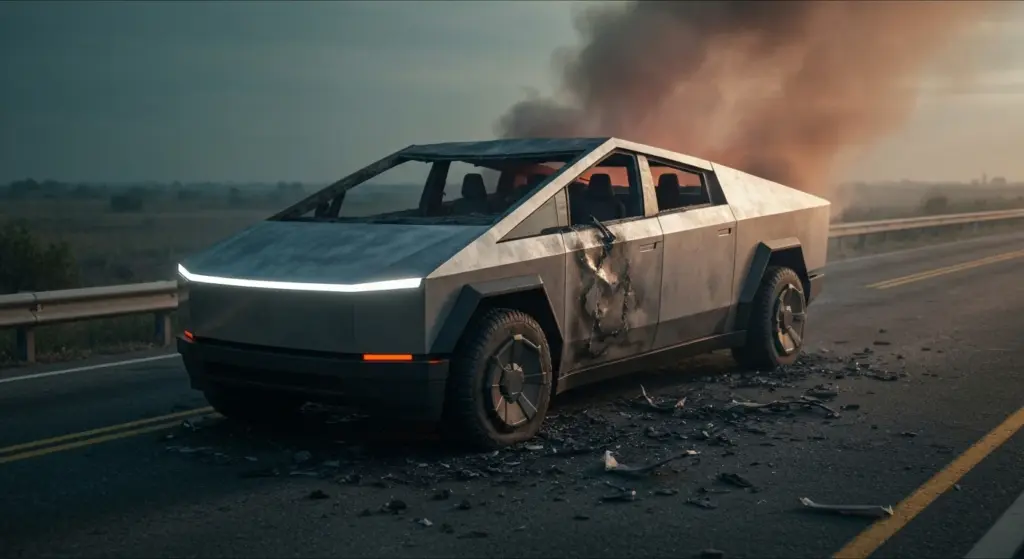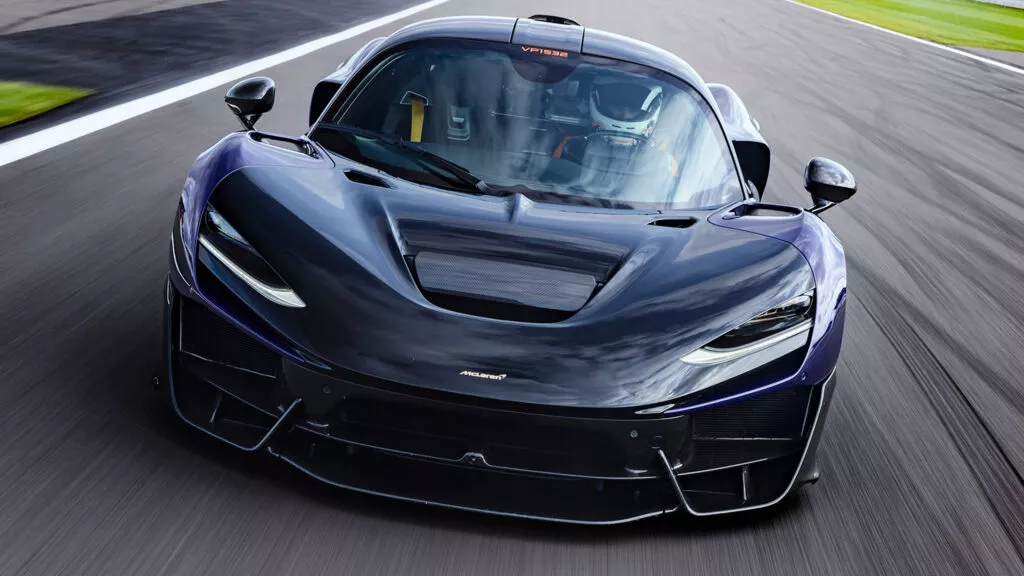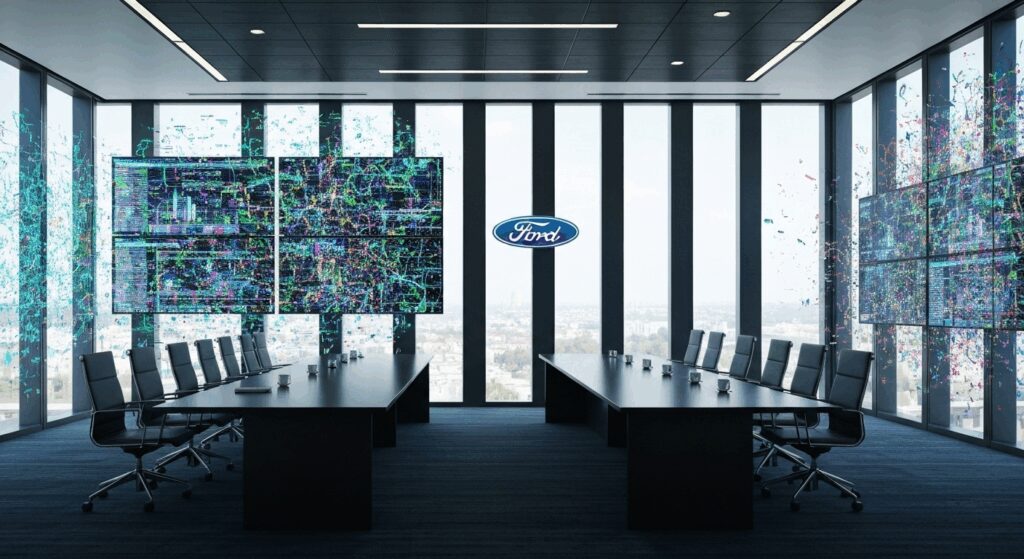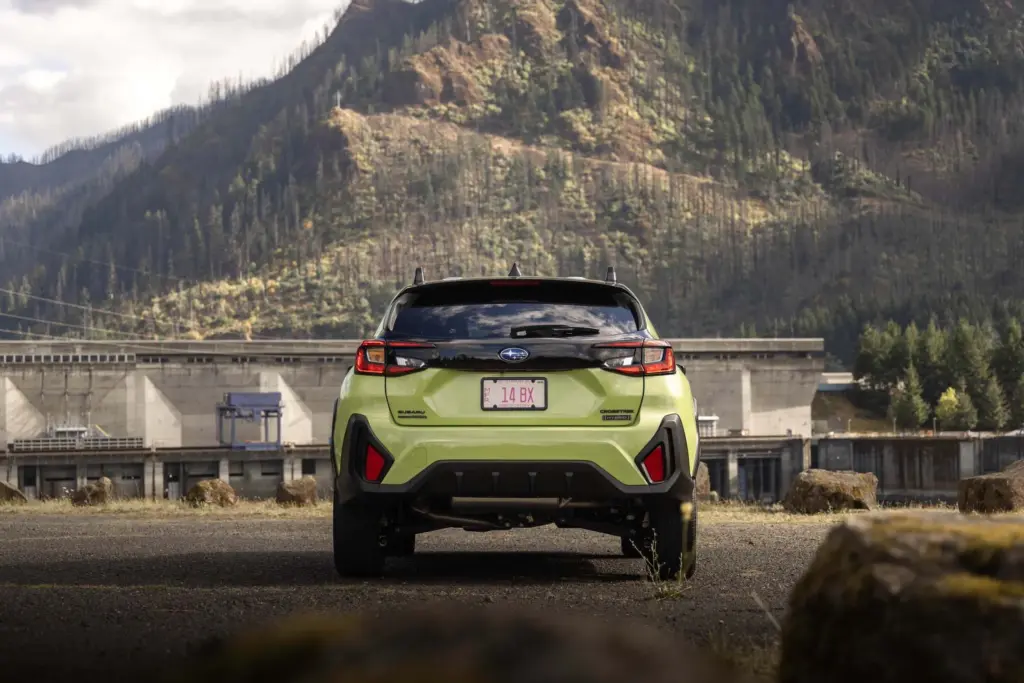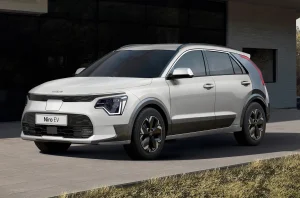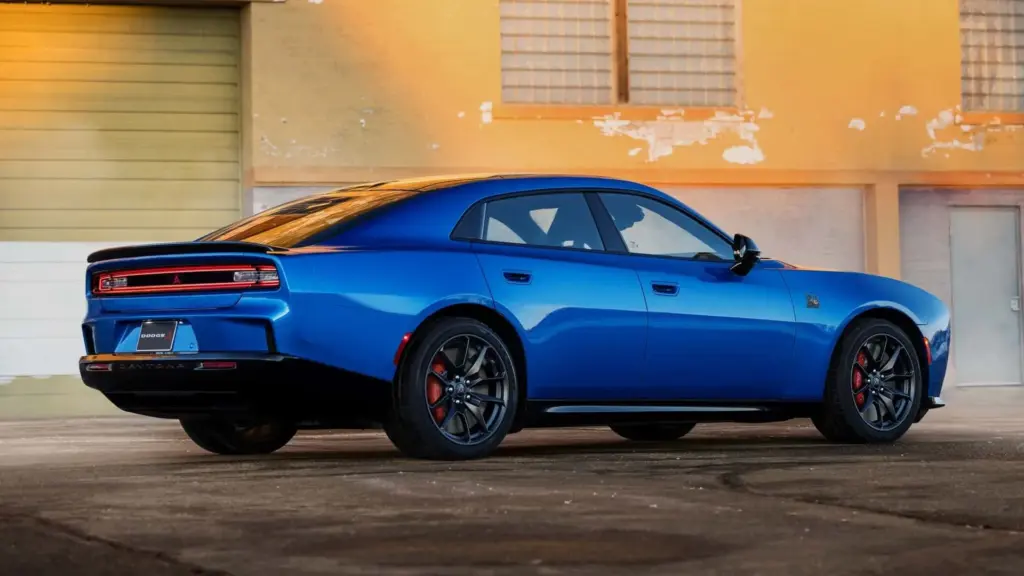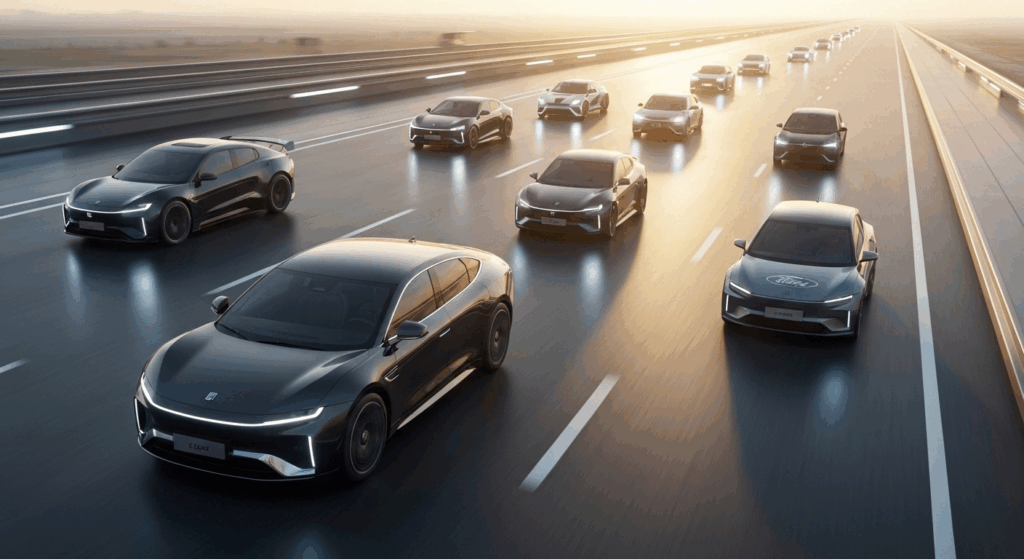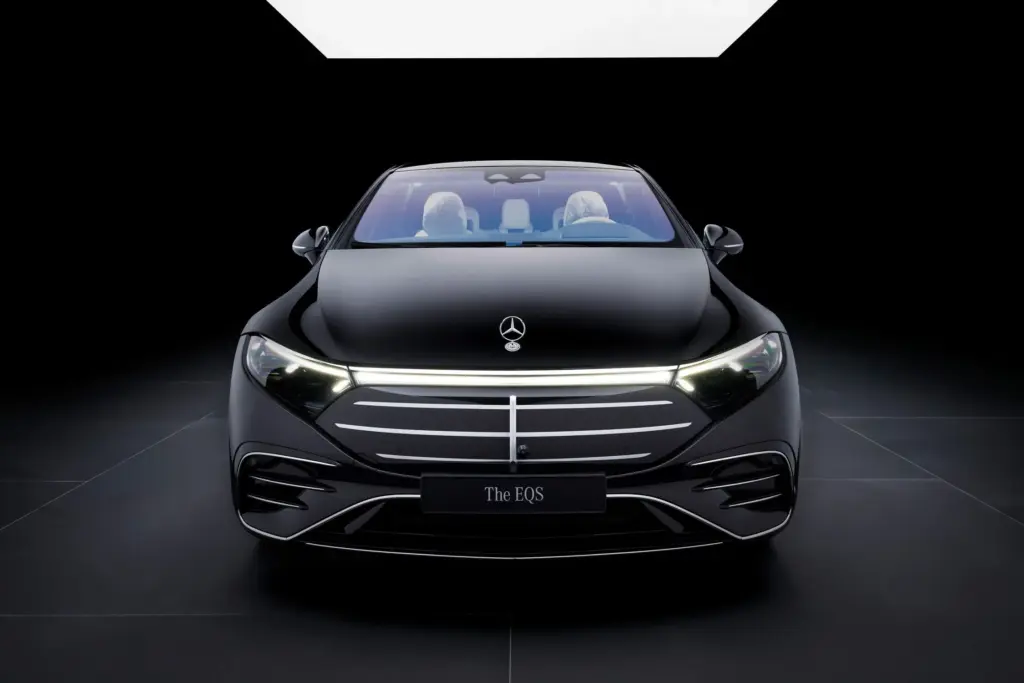With up to 650 hp and 600 km of range, the 2025 BMW i7 impresses. See the real consumption and the complete technical specifications of this premium sedan.
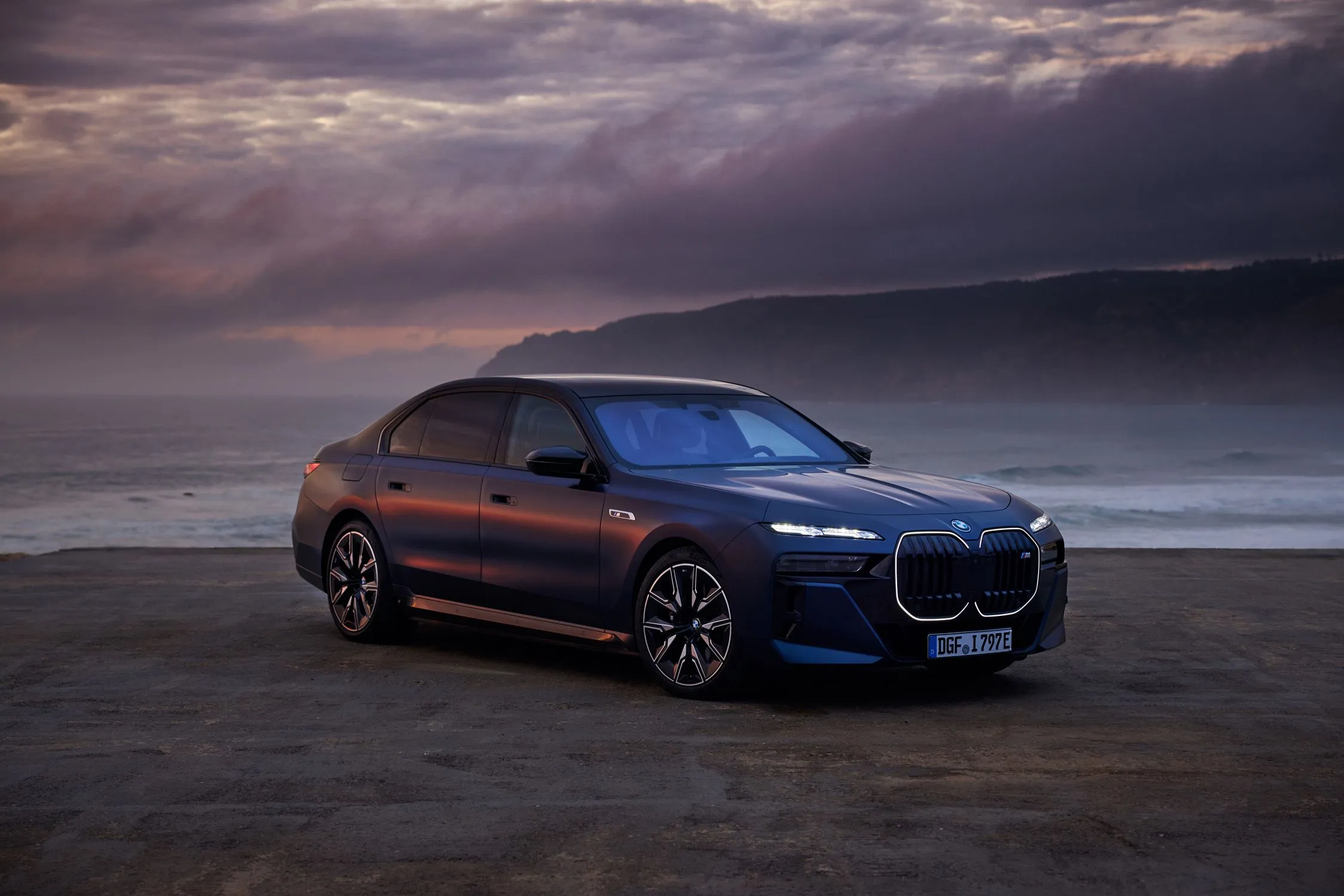
The 2025 BMW i7 arrives as the pinnacle of luxury electric sedans, combining advanced technology, top performance, and a premium experience in the segment. In this article, we reveal the detailed technical specifications, energy efficiency, and analysis of the main competitors for those looking for the perfect balance between innovation and comfort.
Detailed Technical Specifications of the 2025 BMW i7
The 2025 BMW i7 is offered in three main versions, each focused on different driving profiles and performance, but all maintaining the prestige and architecture of the German automaker’s flagship model.
| Specification | i7 eDrive50 | i7 xDrive60 | i7 M70 |
|---|---|---|---|
| Motor | Single rear electric motor | Two electric motors, all-wheel drive | Two high-performance electric motors, all-wheel drive |
| Power | 335 kW (449 hp) | 400 kW (536 hp) | 485 kW (650 hp) |
| Torque | 650 Nm | 745 Nm | 1,015 Nm |
| Drive | Rear-wheel drive (RWD) | All-wheel drive (xDrive AWD) | All-wheel drive (xDrive AWD) |
| Battery | Lithium-Ion, ~101.7 kWh usable | ||
| Range (WLTP) | Over 600 km | Over 600 km | Up to 470 km |
| Trunk Capacity | Approximately 500 liters | ||
| Dimensions (L x W x H) | 5,391 mm x 1,950 mm x 1,544 mm | ||
| Wheelbase | 3,215 mm | ||
Besides the mechanical setup, the BMW i7 is equipped with technologies such as the BMW Curved Display, which integrates a 12.3” digital instrument cluster and a 14.9” central screen under a single glass panel, ensuring a modern and intuitive interface. The iDrive 8.5 system, “Sky Lounge” panoramic roof with LED lighting, and the optional 31.3″ 8K “Theatre Screen” for rear passengers take luxury to a new level.
Consumption and Energy Efficiency
Being 100% electric, the BMW i7’s consumption is expressed in kWh per 100 km, following the WLTP standard:
- i7 eDrive50: between 19.2 and 20.3 kWh/100 km
- i7 xDrive60: ranges from 18.5 to 19.6 kWh/100 km
- i7 M70: estimated consumption between 20.8 and 23.8 kWh/100 km, due to high performance
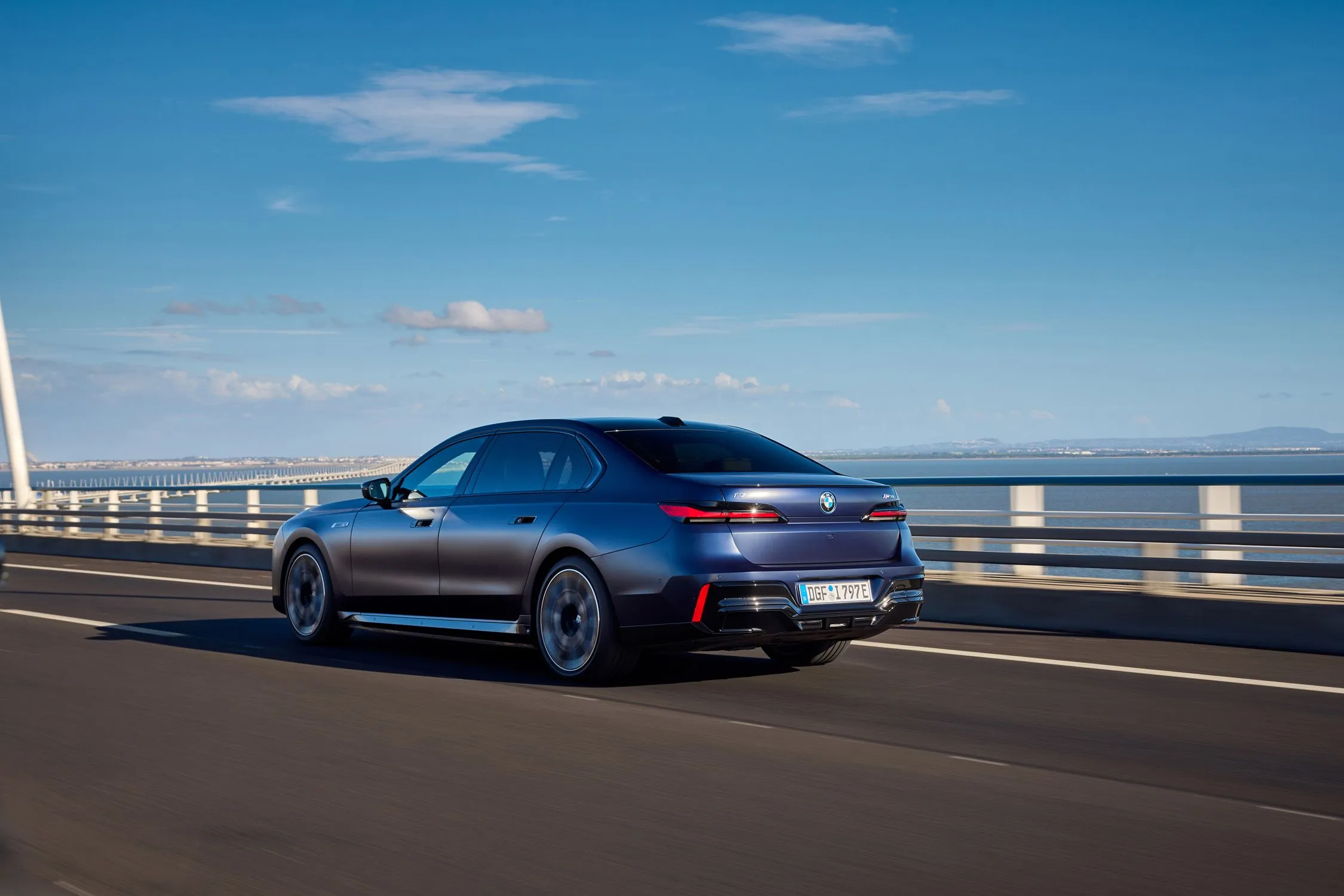
It’s worth noting that the approximately 101.7 kWh battery allows for a range of up to 600 km in the more efficient versions, while the maximum power M70 model offers real-world range around 470 km.
This setup makes the BMW i7 a benchmark for premium sedans that seek to combine energy efficiency, adequate range, and sporty performance. For enthusiasts interested in other luxury electric sedan options, we recommend reading the analysis of the 2026 Mercedes-Benz EQS, which faces the BMW i7 in a direct battle for the throne of this category.
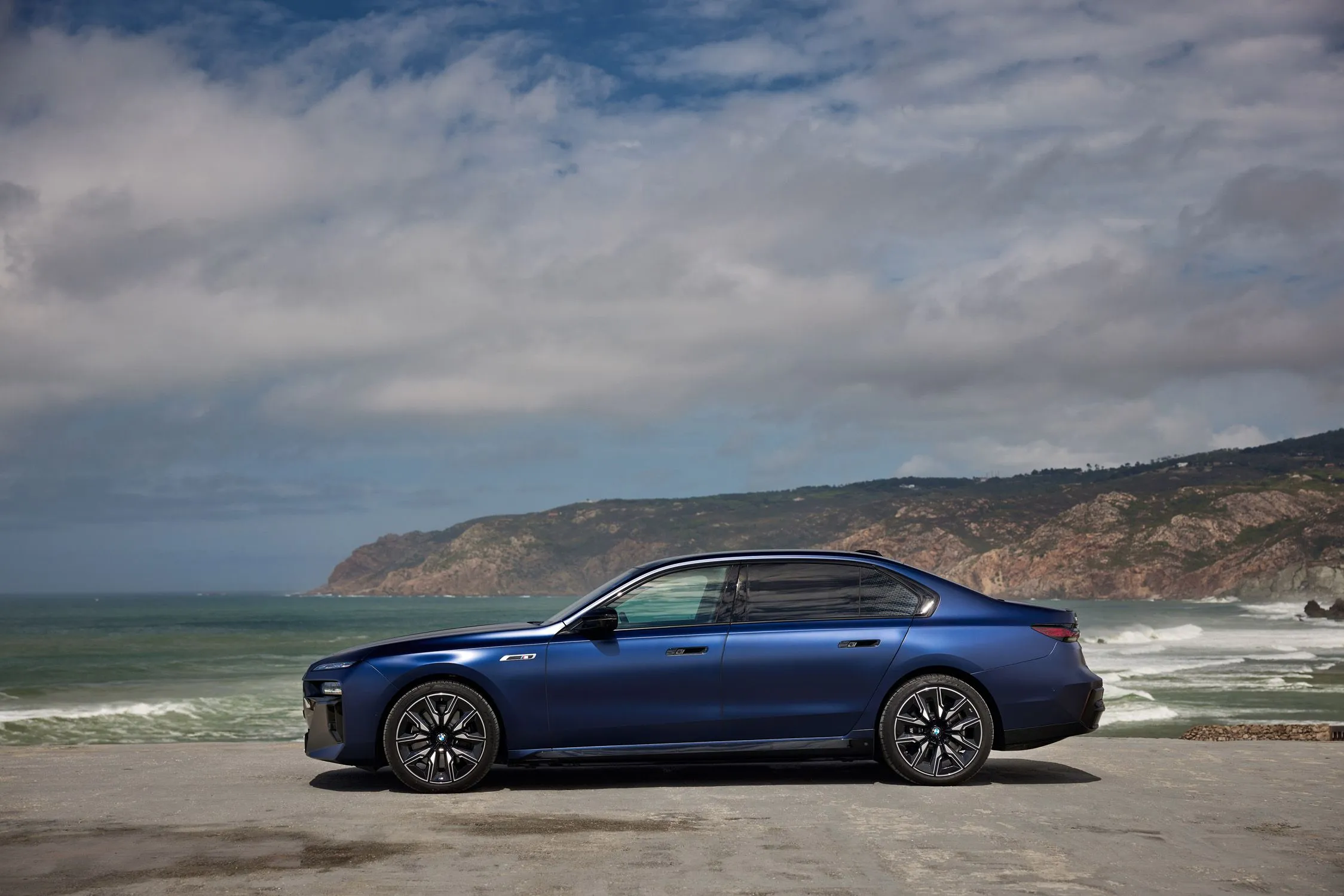
Main Competitors of the BMW i7 and Comparison
The premium electric sedan segment is becoming increasingly competitive, with big names offering different combinations of luxury, technology, and performance. Below, we highlight the main rivals of the 2025 BMW i7:
Mercedes-Benz EQS
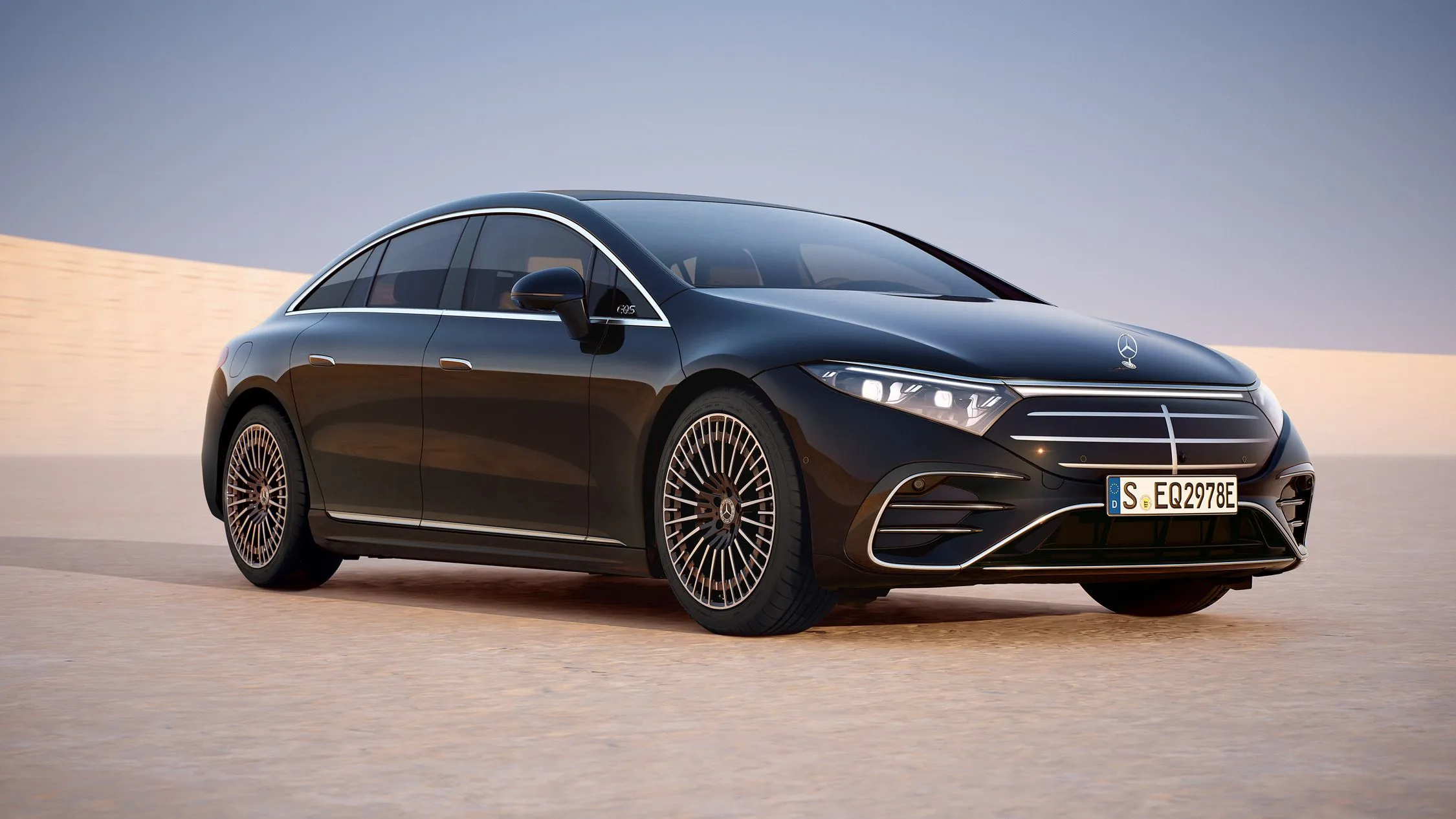
The EQS is the best-known direct competitor, standing out for its futuristic design and the 56-inch MBUX Hyperscreen dashboard. Its powertrains range from 265 kW up to a powerful 484 kW in the AMG EQS 53, with the base version’s range reaching about 770 km (EPA). To learn more about the EQS and its showdown with other market leaders, check out our full analysis Mercedes-Benz EQS 2026 vs Rivals.
Lucid Air
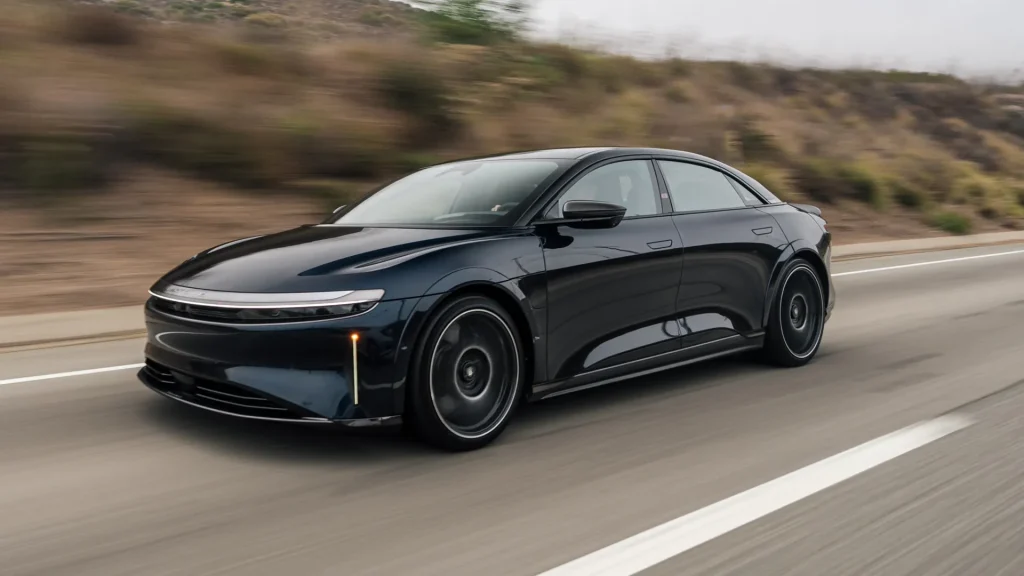
With proprietary technology and a focus on range, the Lucid Air offers versions exceeding 800 km according to the EPA standard. Its minimalist design and combined trunk space surpassing 700 liters reinforce its appeal for buyers prioritizing space and efficiency.
Porsche Taycan
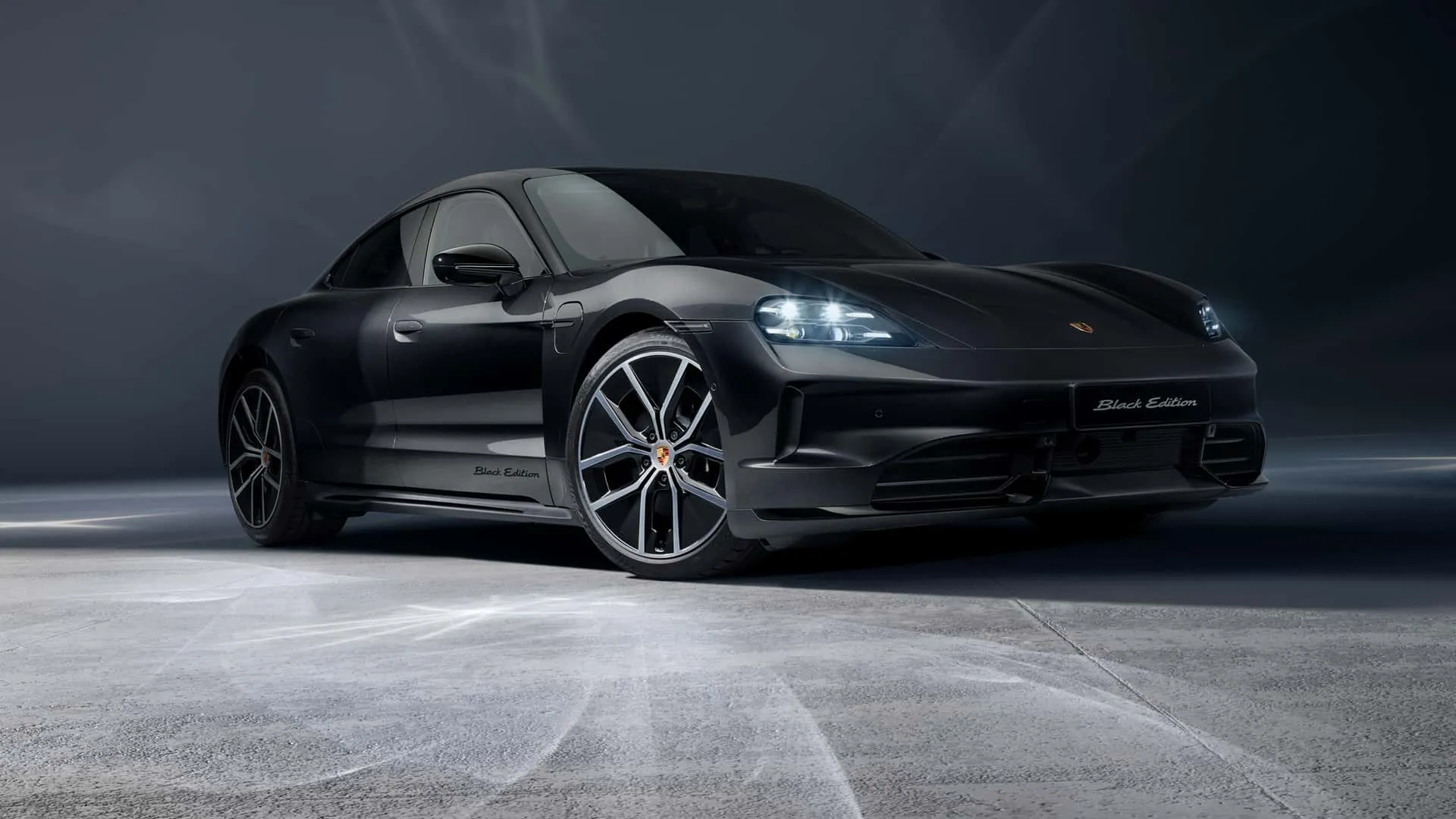
Focused on a sporty driving experience, the Taycan stands out for its two-speed transmission and power that can reach 700 kW in the Turbo S version. Despite a more compact interior, it is the choice for those who want the excitement of a sports car with technological luxury.
Genesis Electrified G80
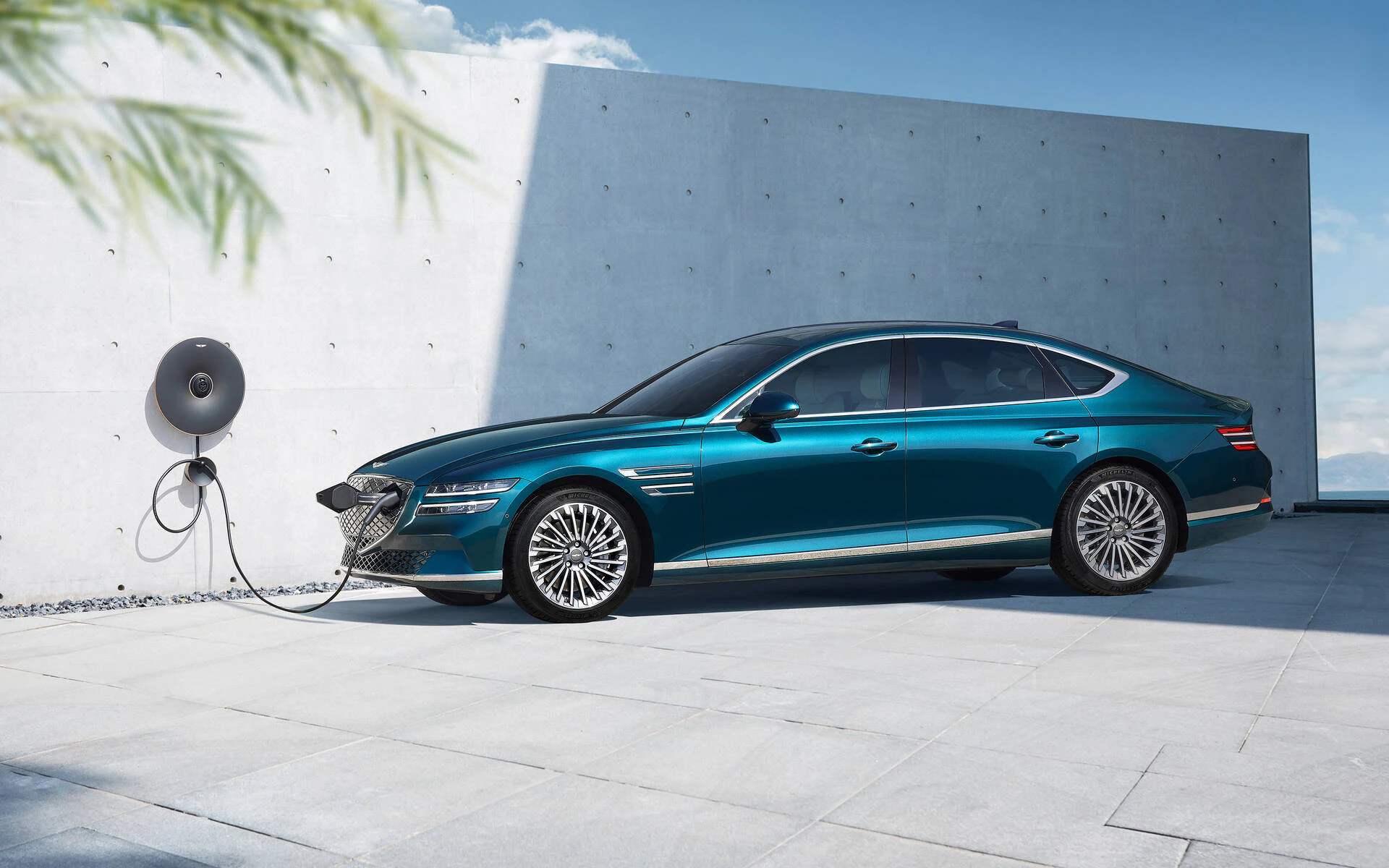
Genesis emerges as a more affordable alternative, with a refined luxury package and competitive energy consumption, close to 19.1 kWh/100 km WLTP. Its sober design and standard equipment add value for those seeking more understated luxury.
In this scenario, the BMW i7 stands out for its balanced combination of comfort, advanced technology, and robust performance, without giving up the sportiness that is BMW’s trademark.
For those wanting to expand their knowledge on luxury electric cars and follow industry news, we recommend recent and relevant content such as the analysis of the Tesla Cybertruck and its problems, as well as the article about the McLaren W1, which brings surprising technical data in the electric hypercar segment.

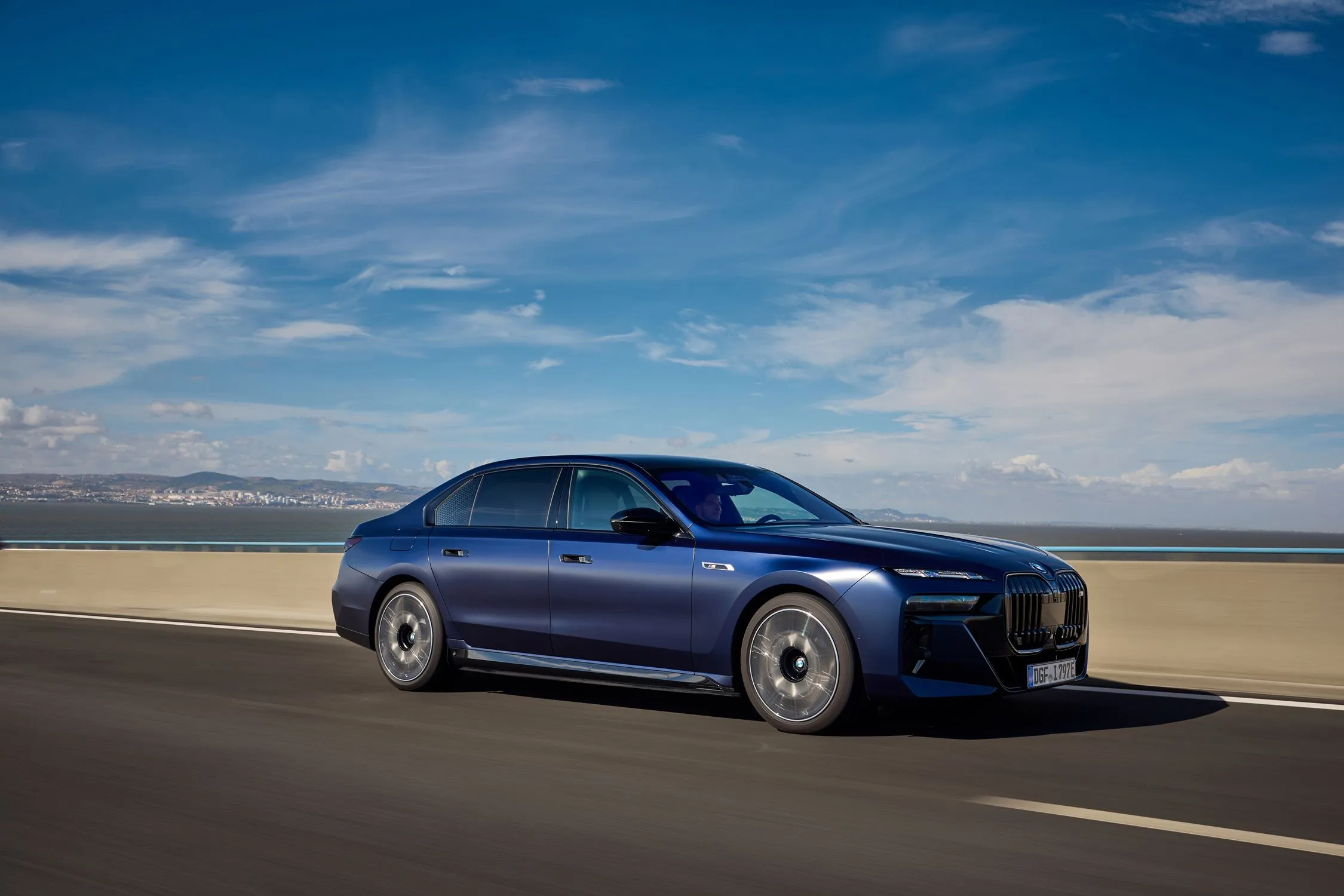


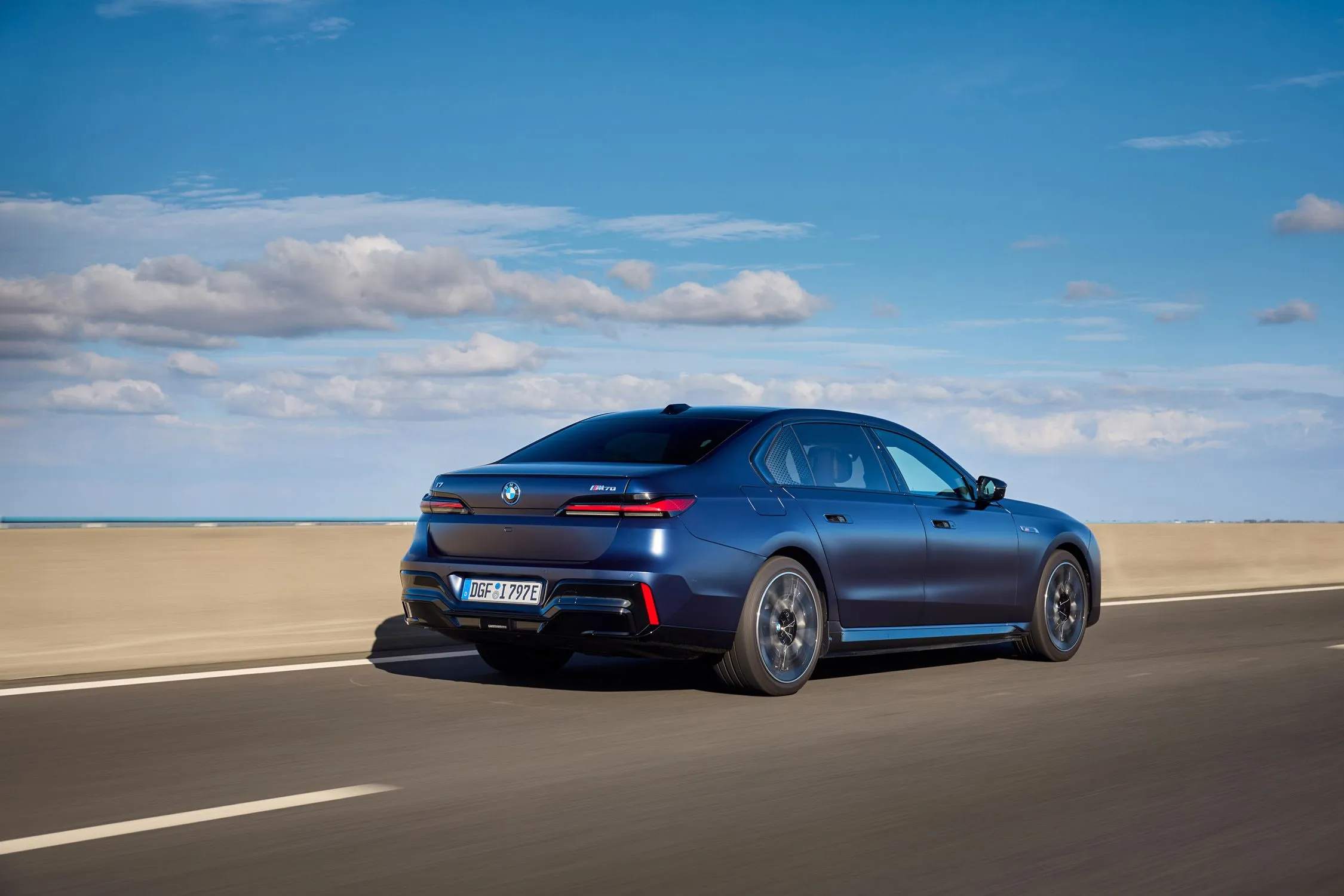
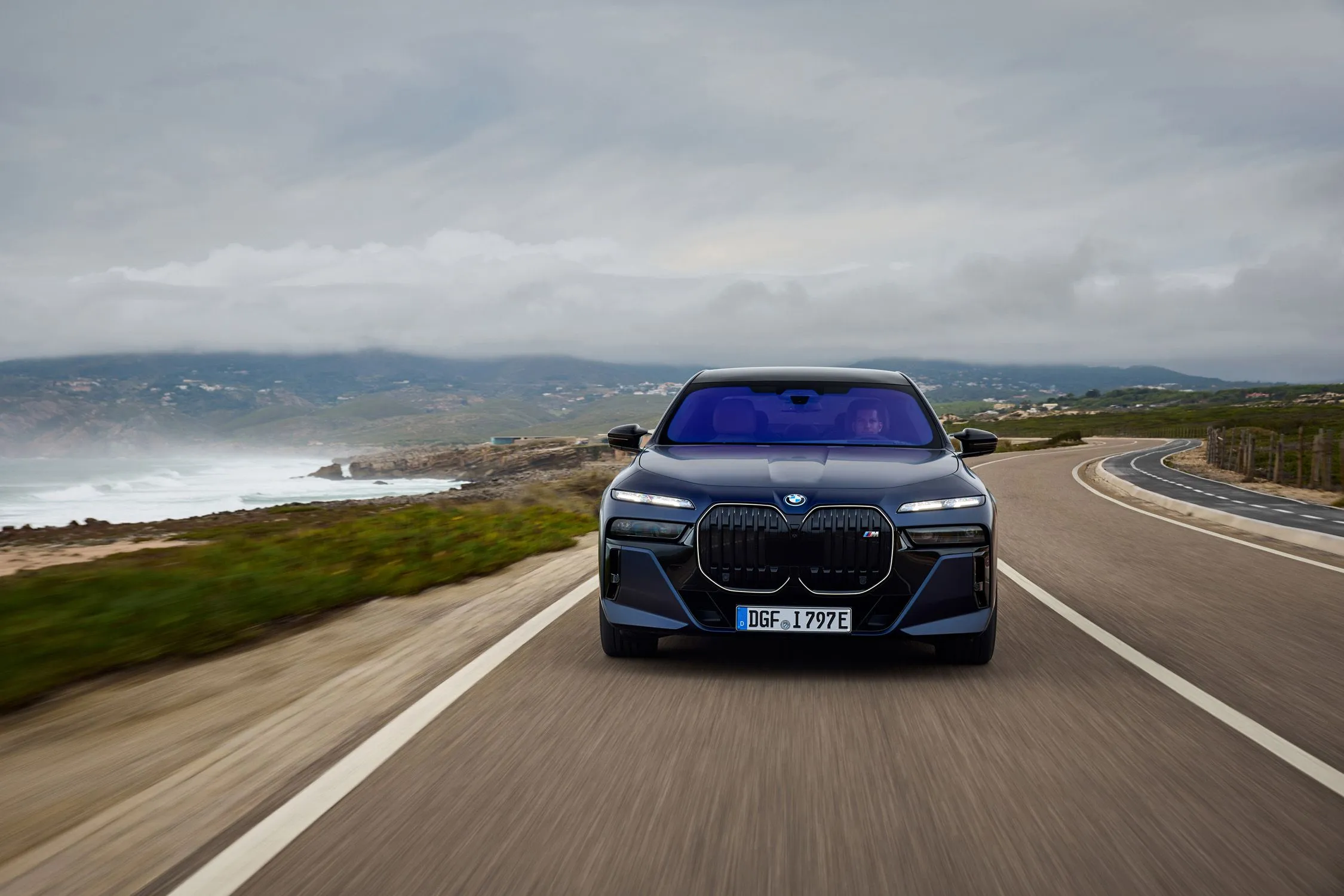
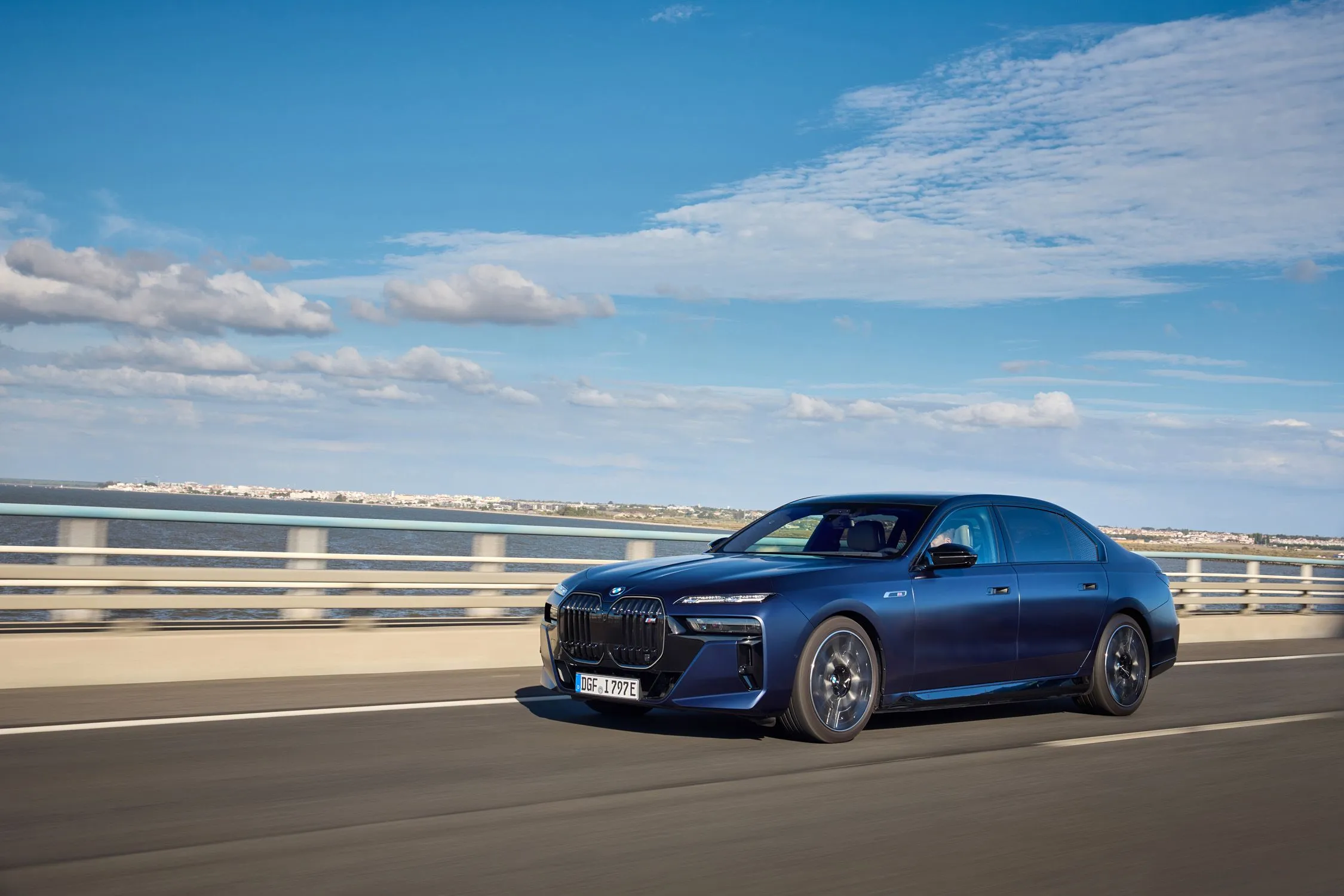
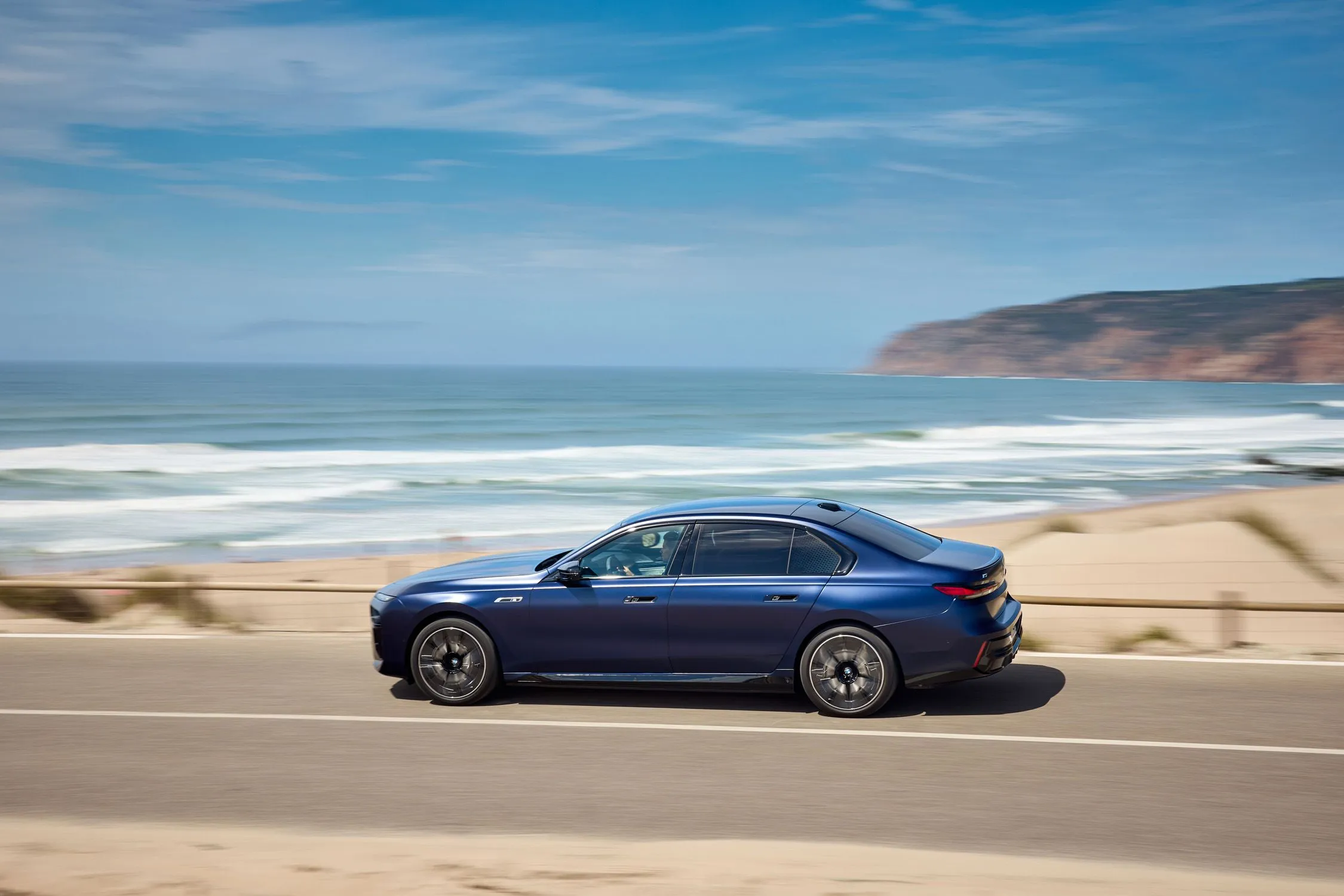
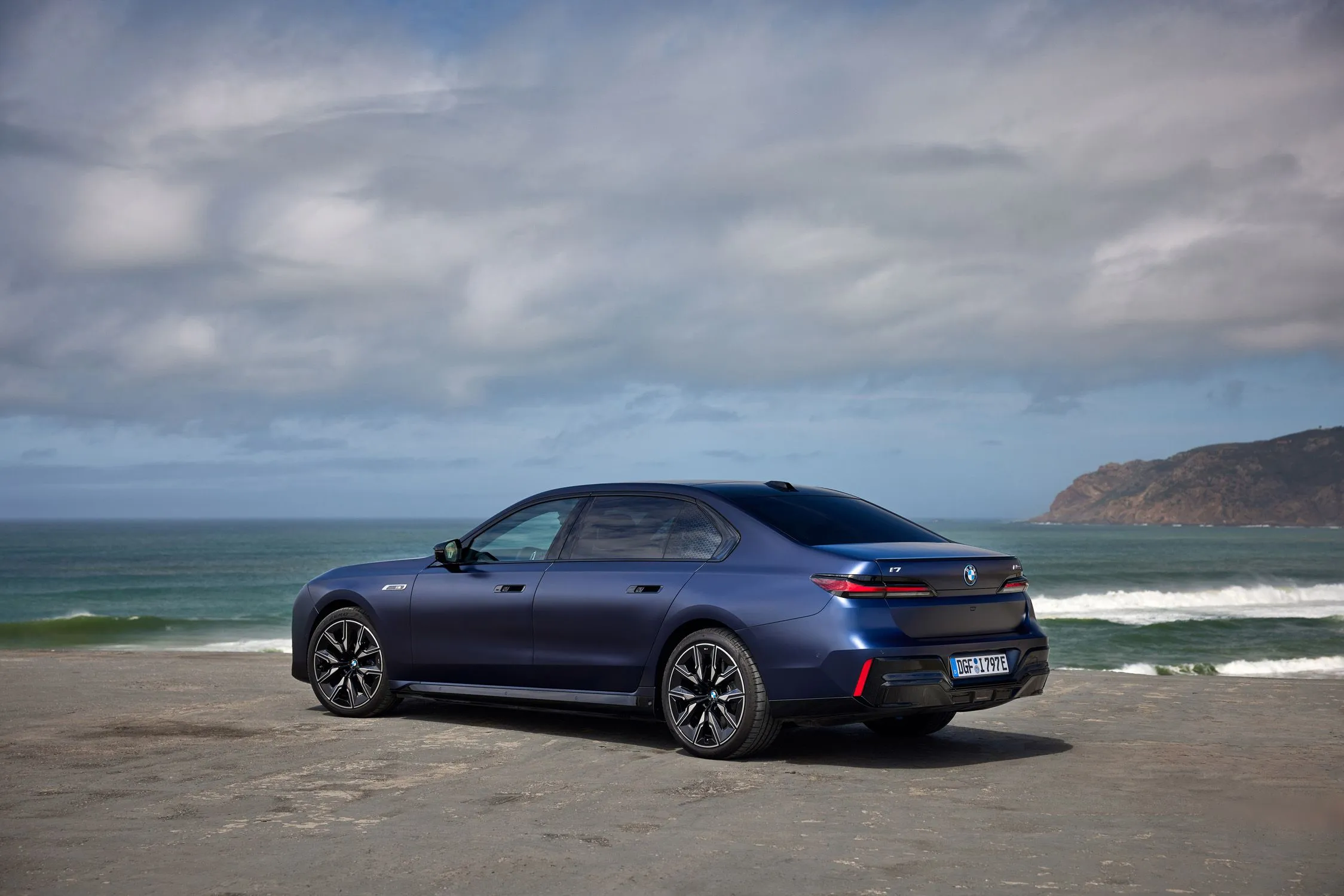
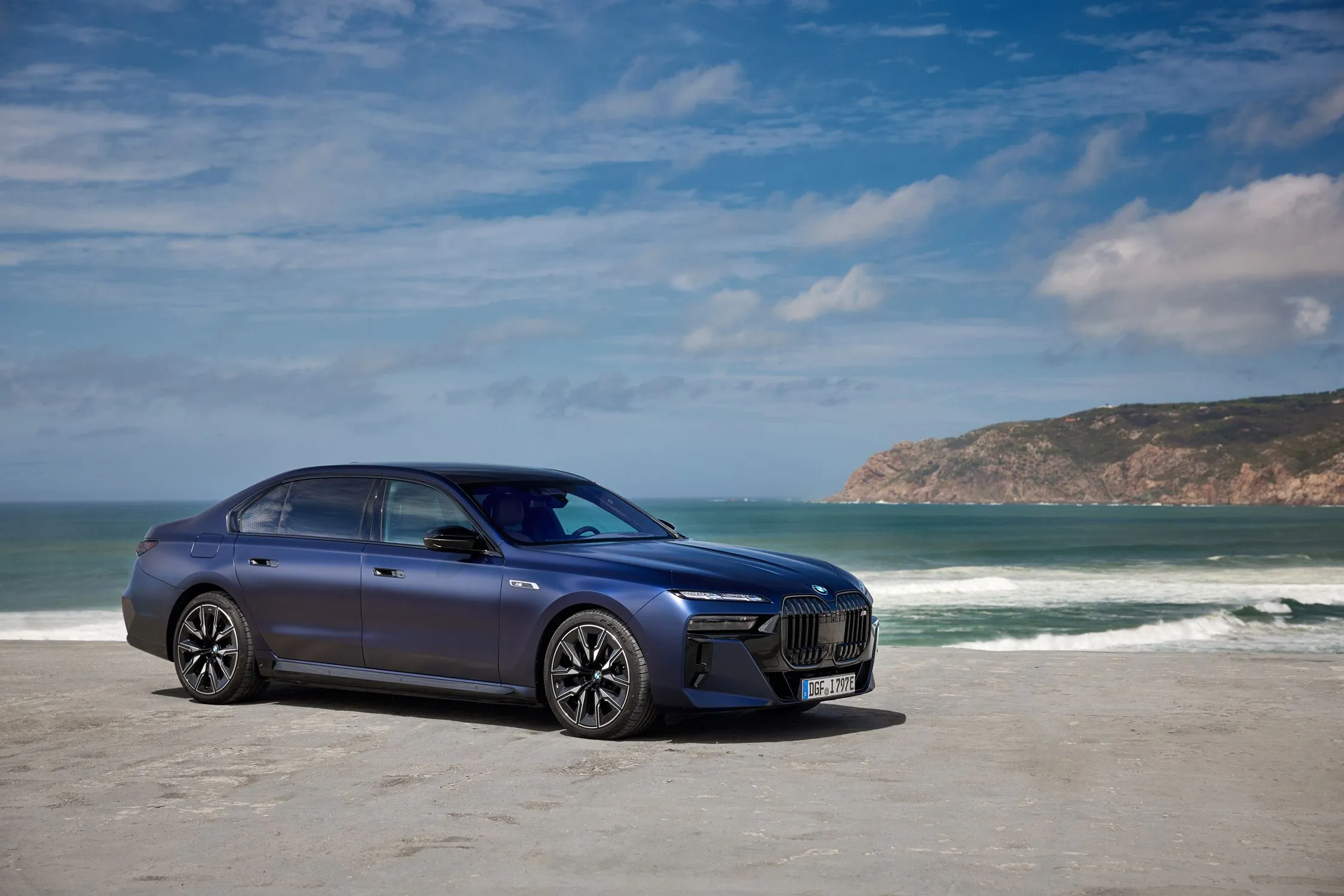

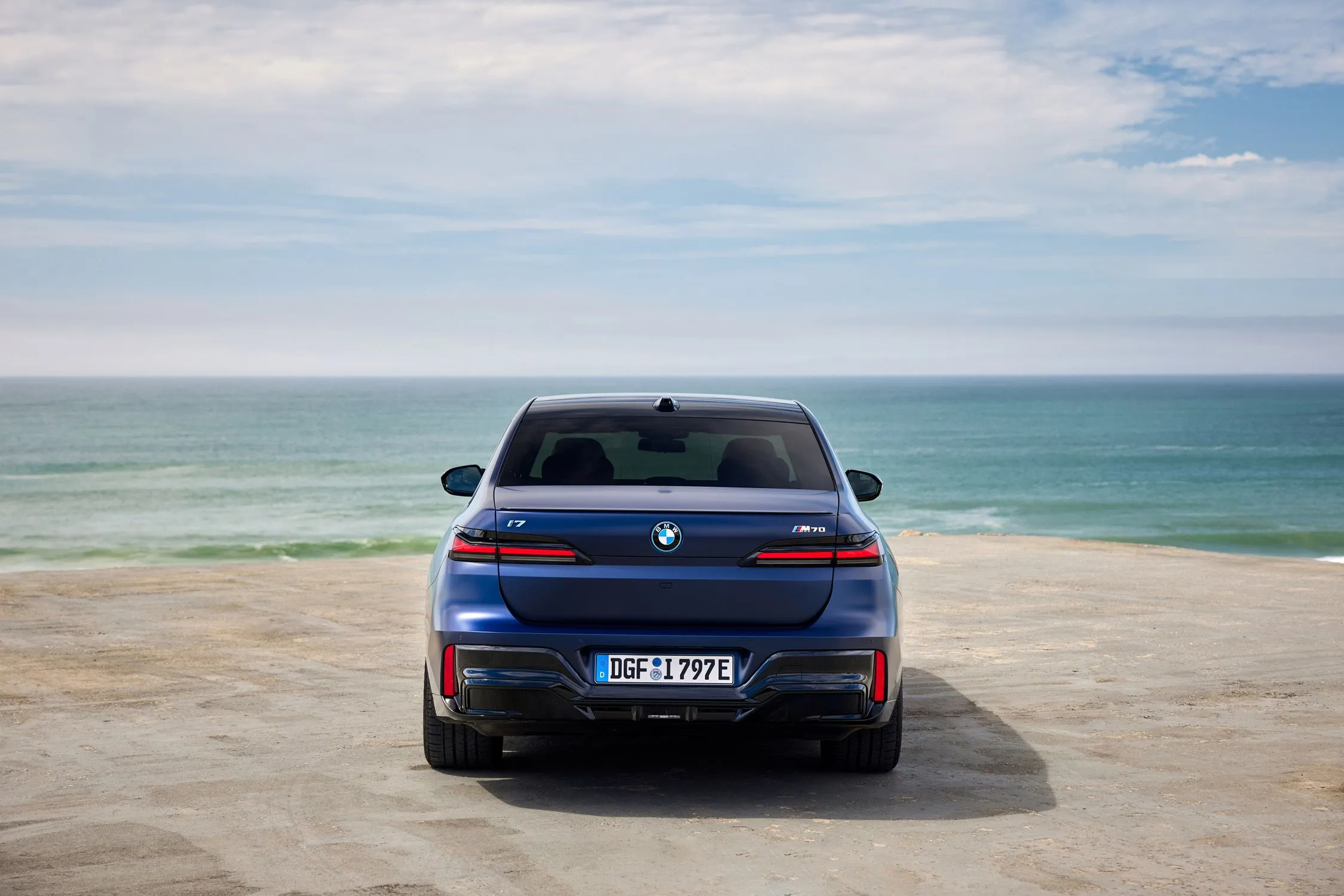
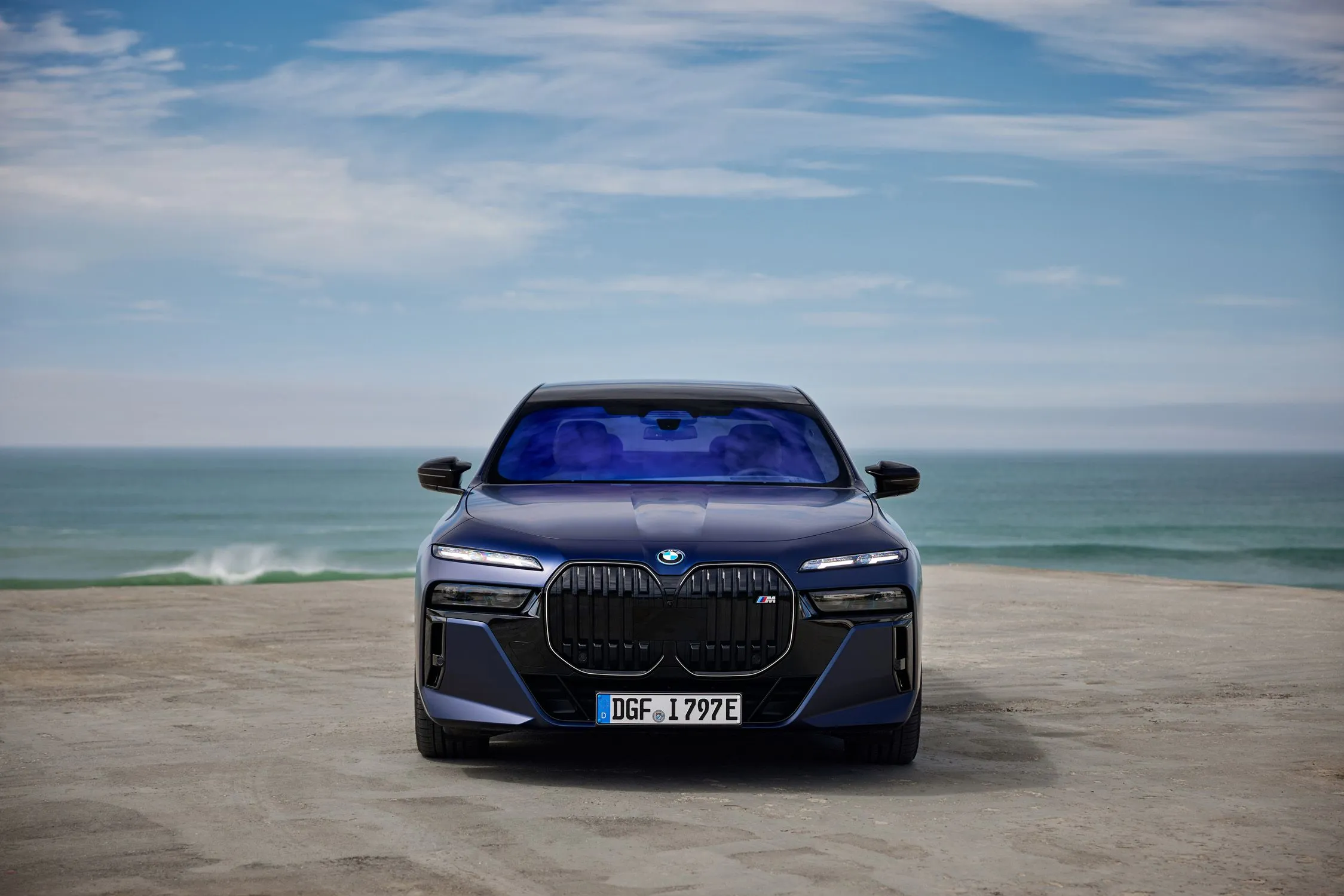
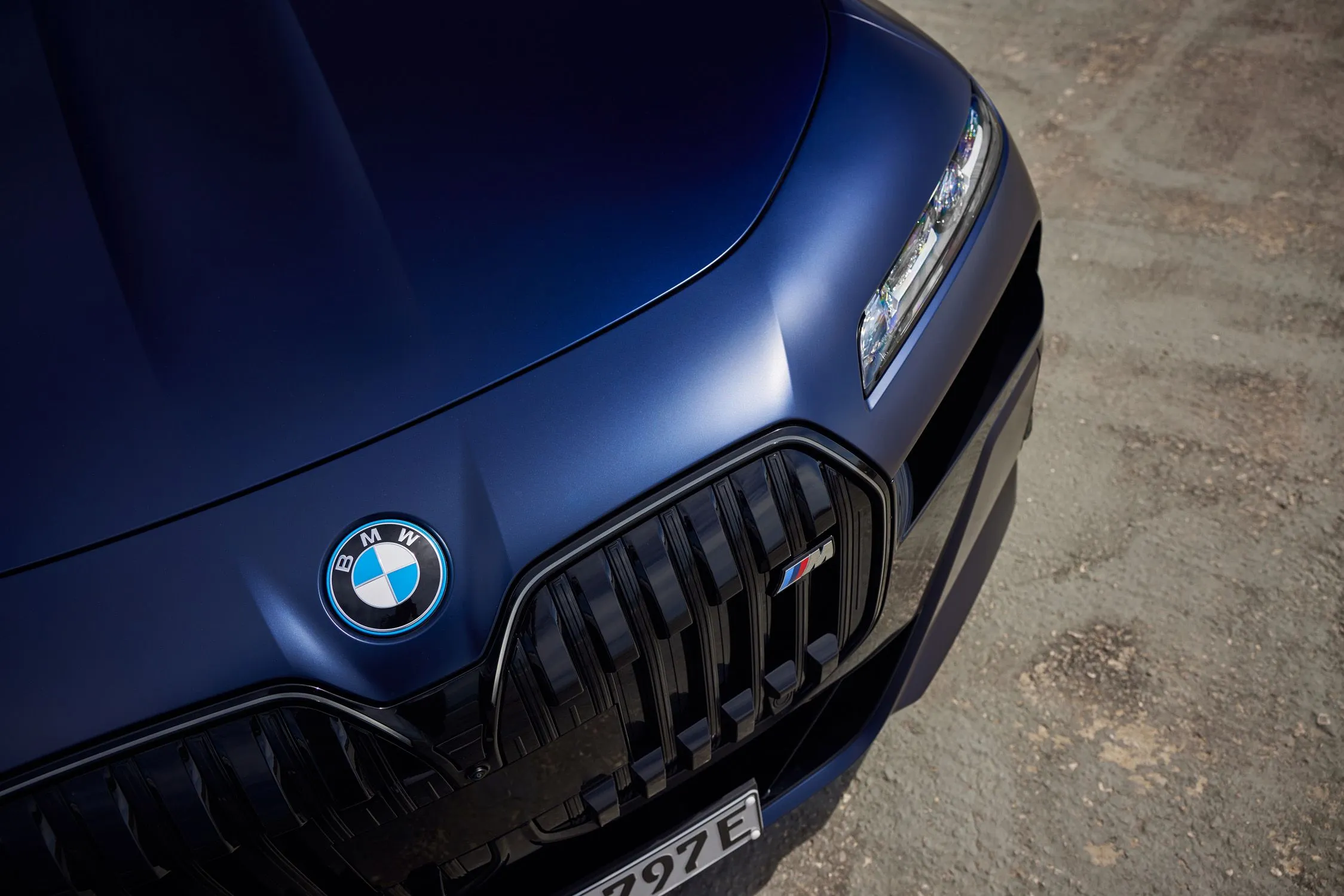
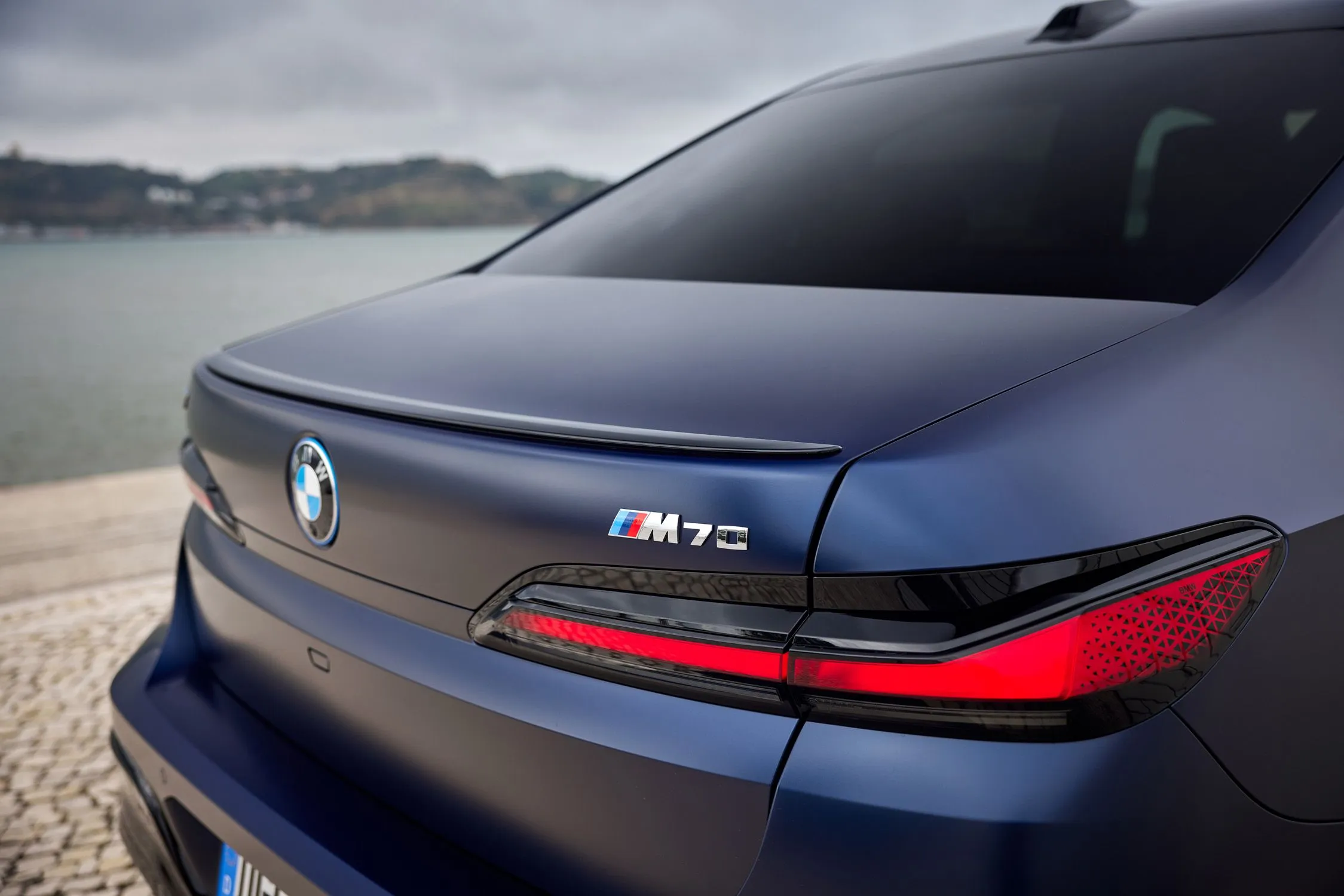
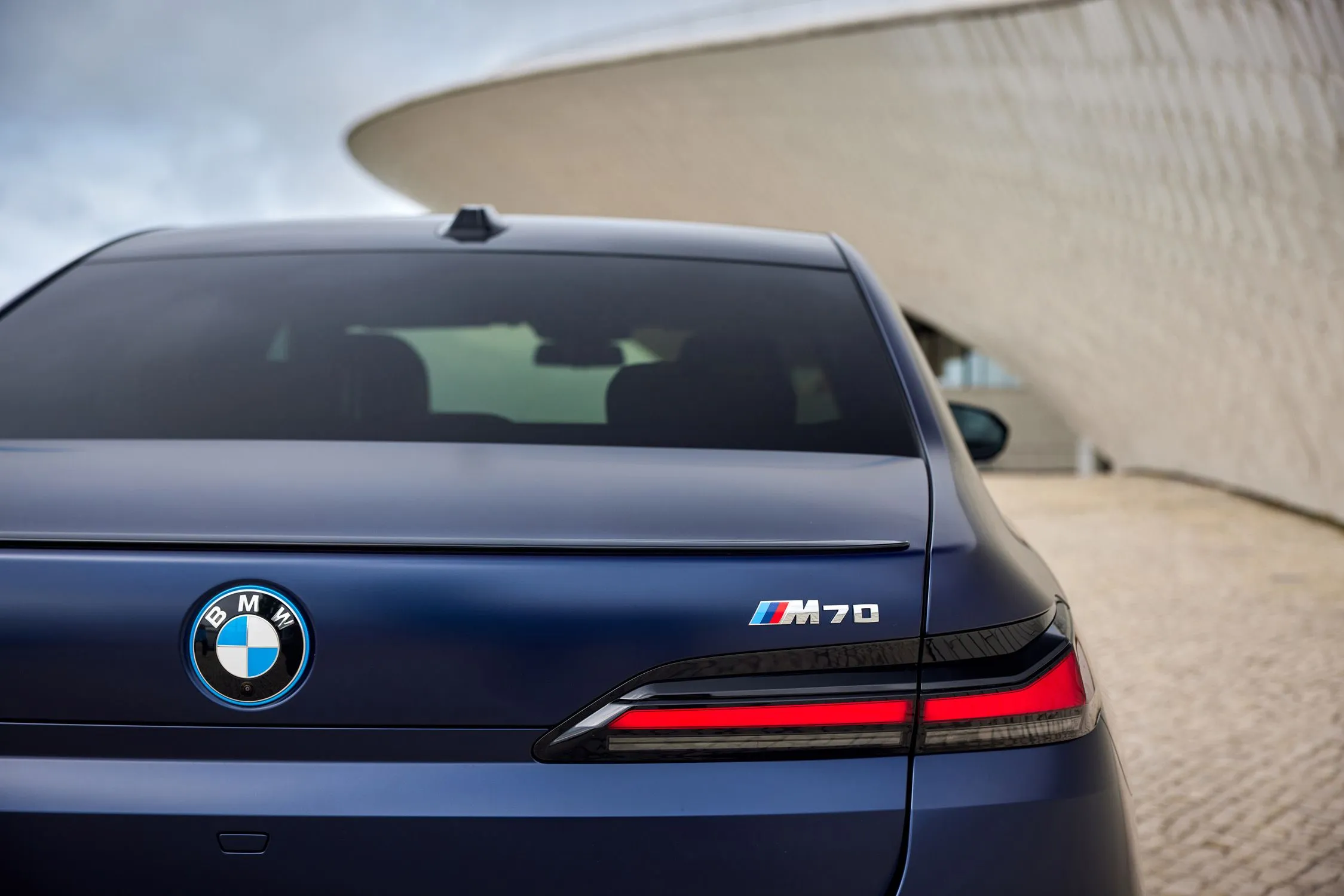
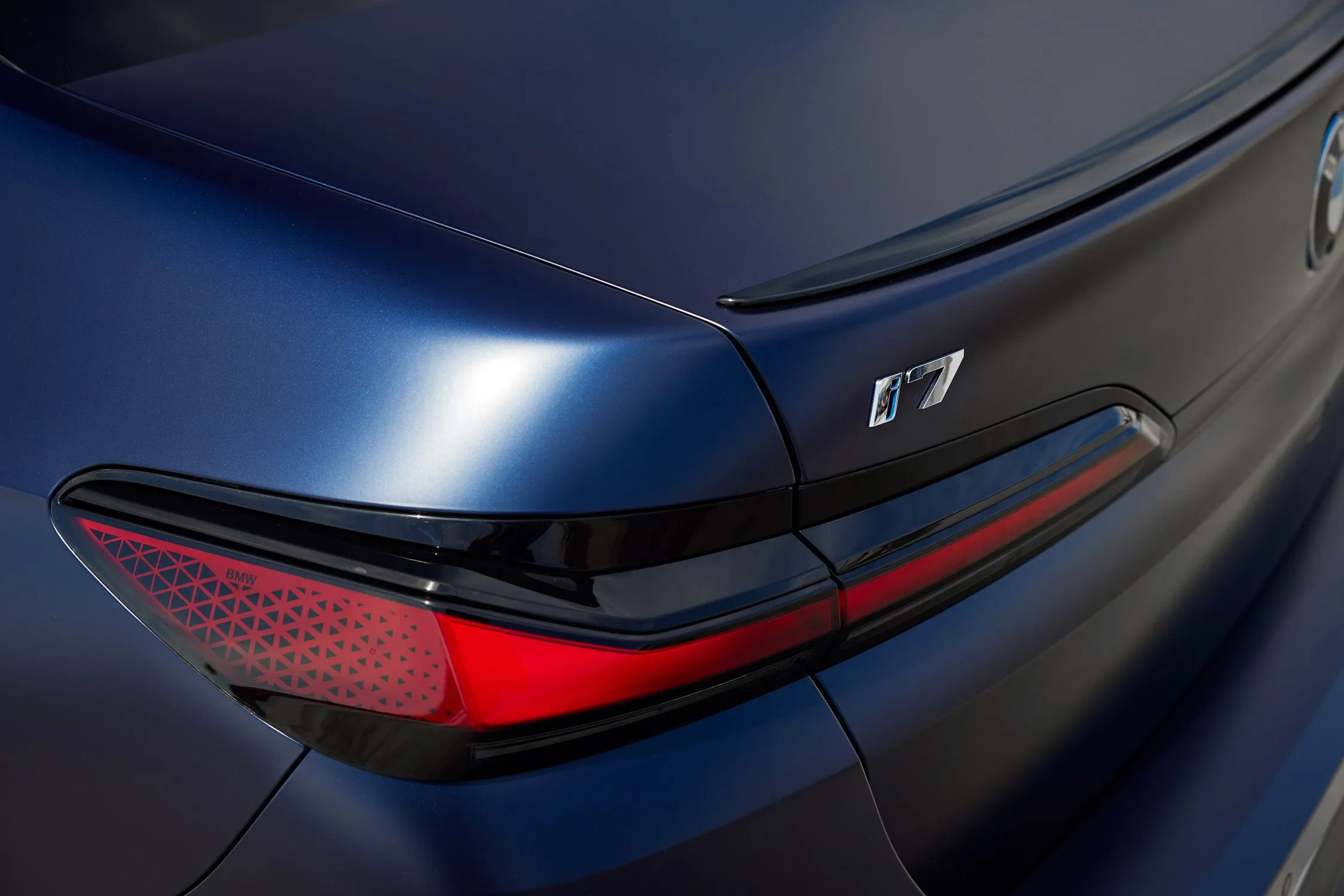
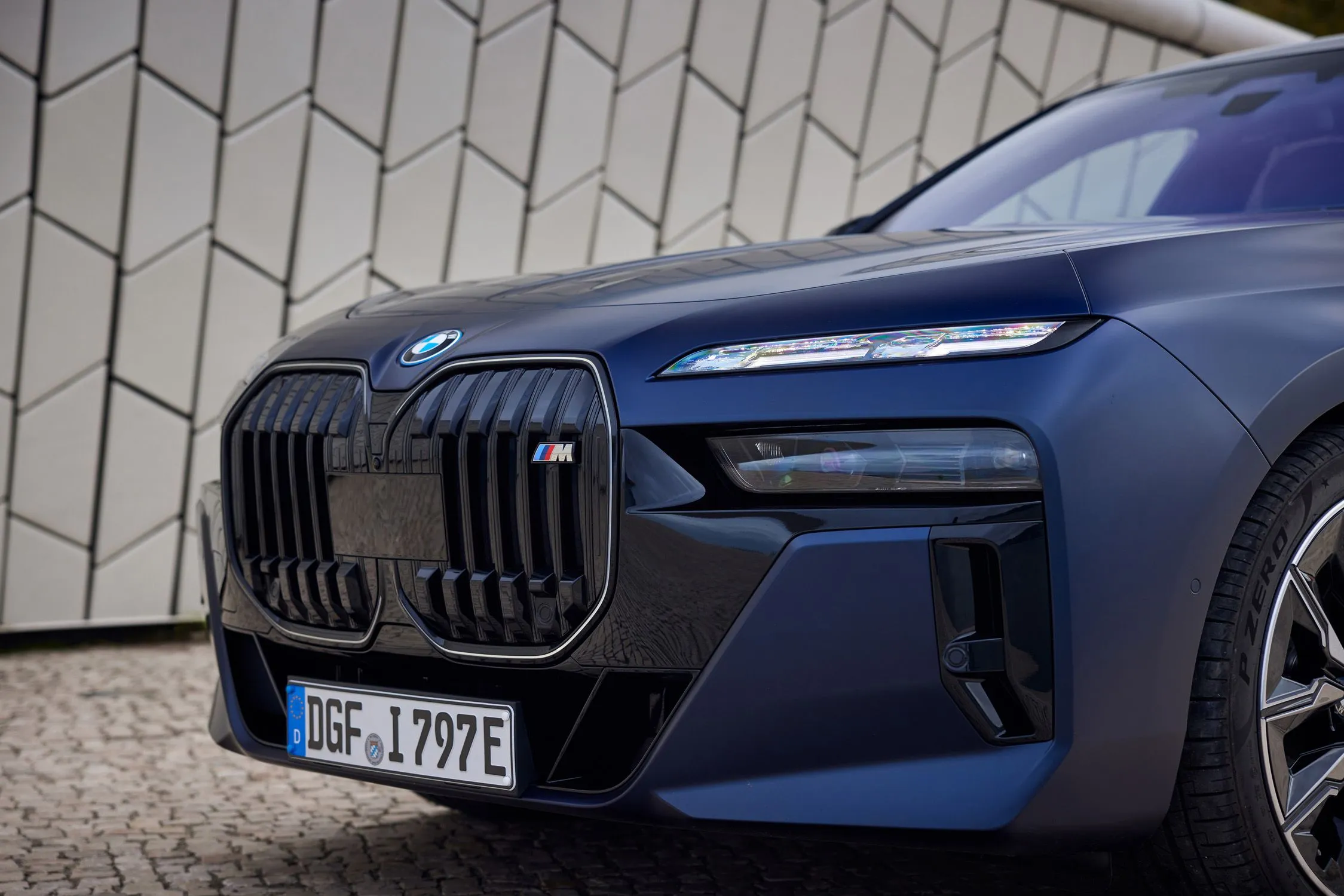
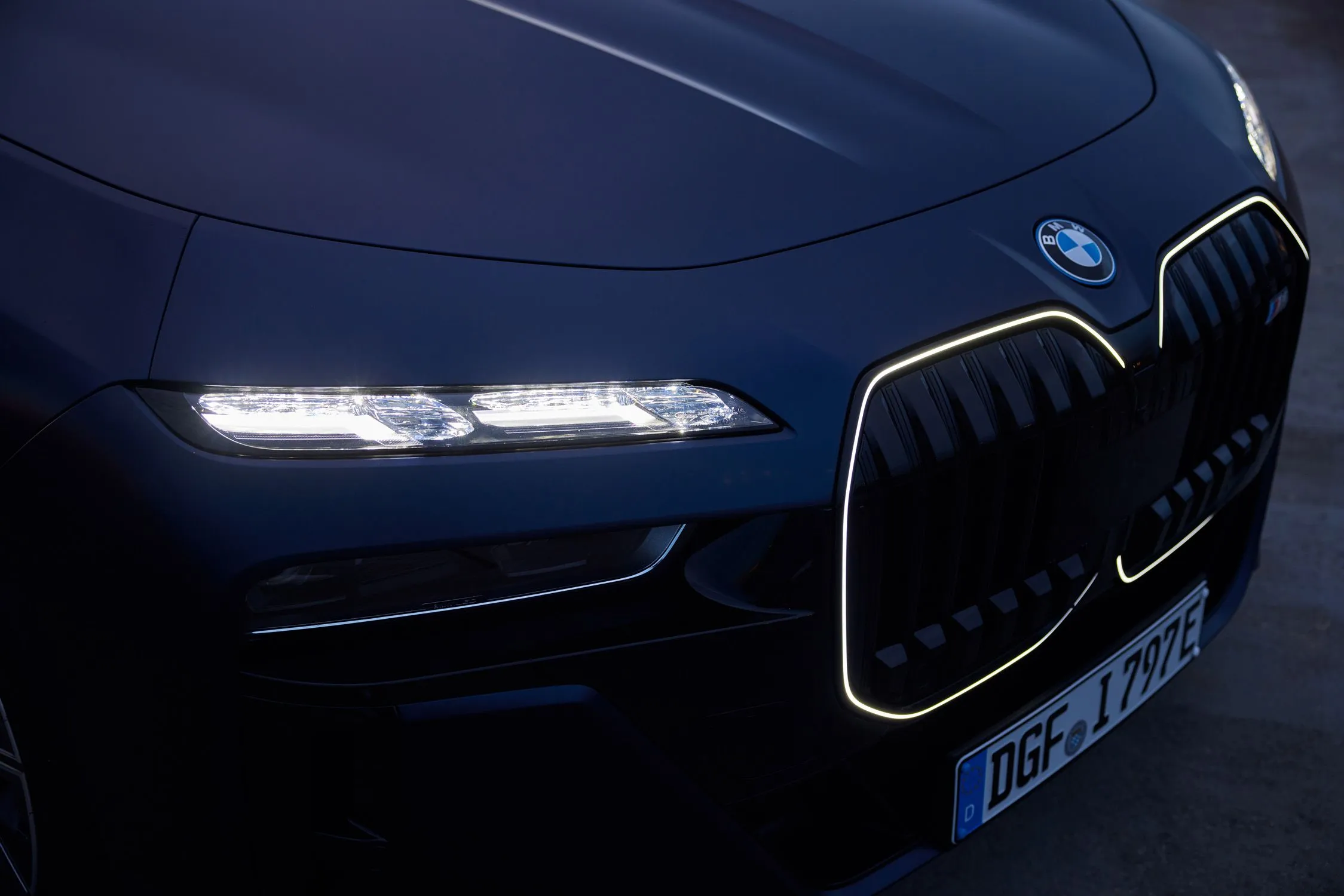
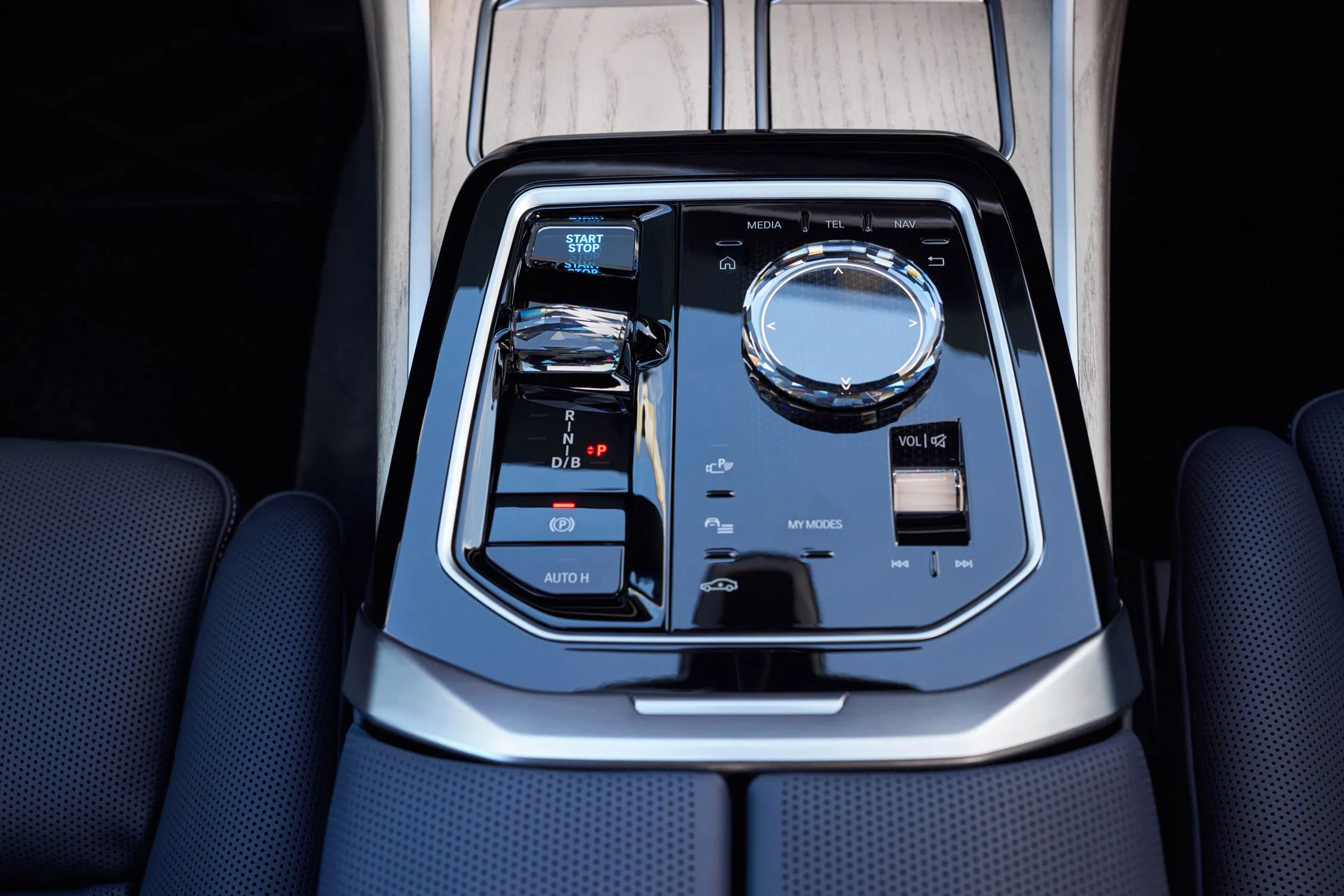
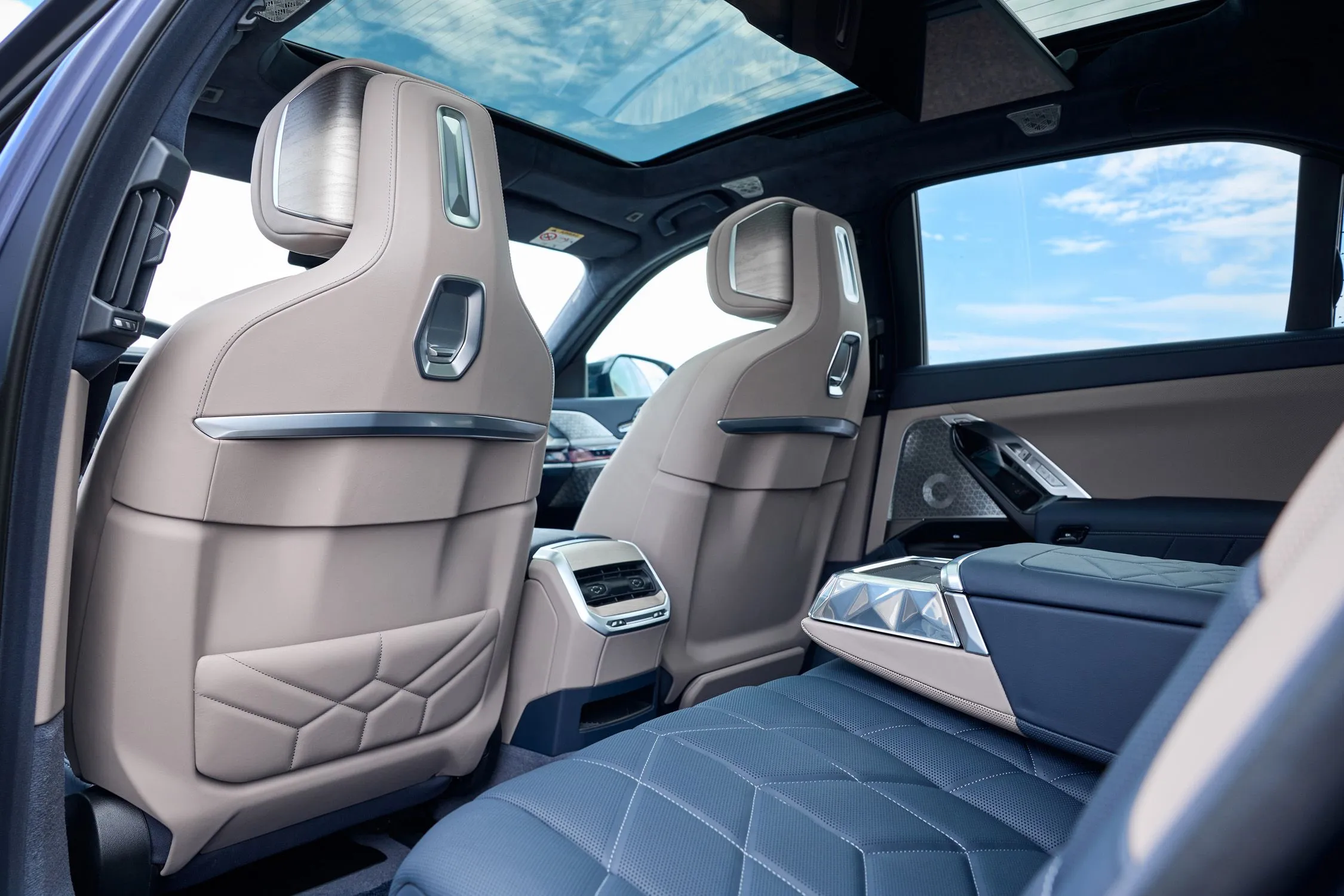
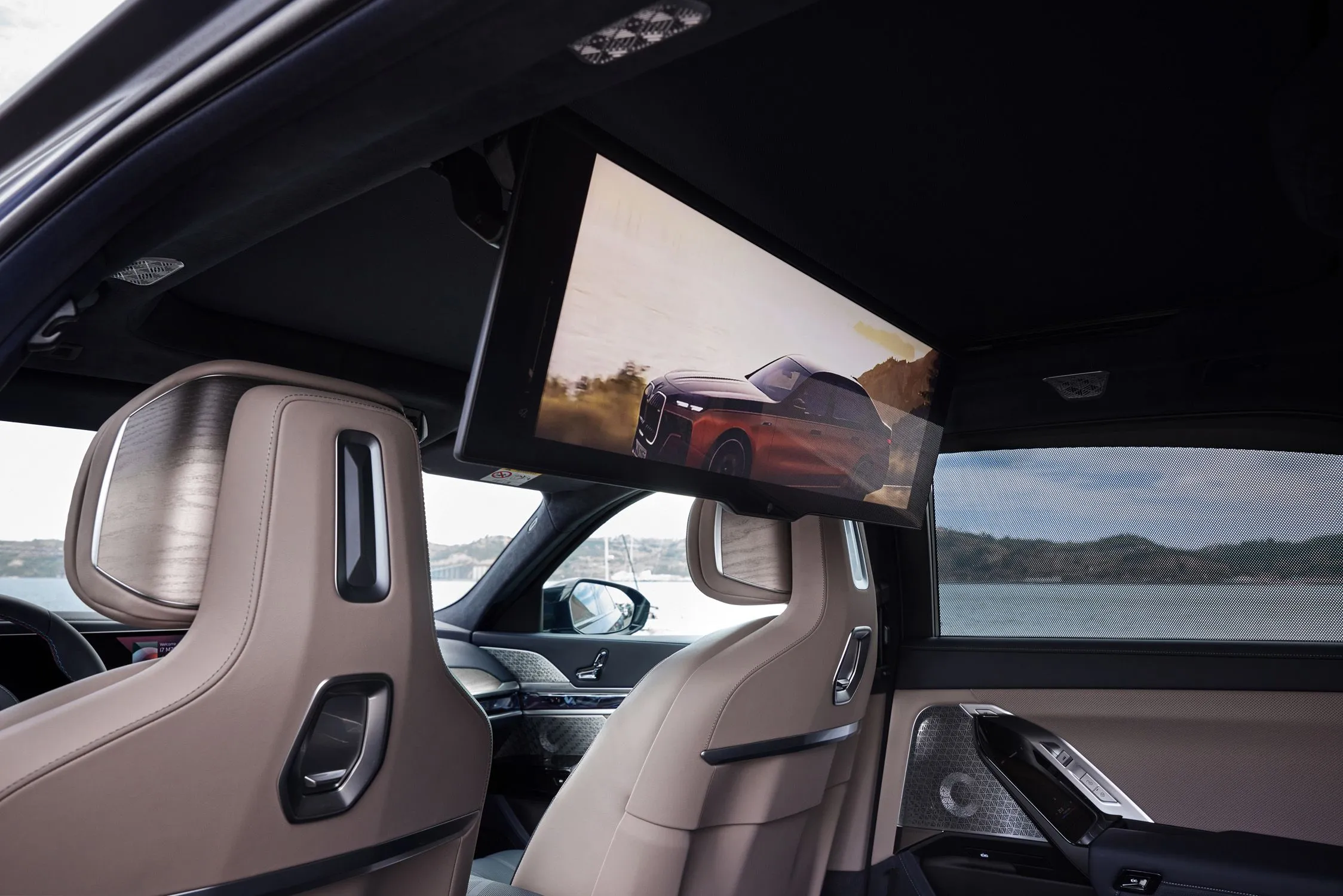
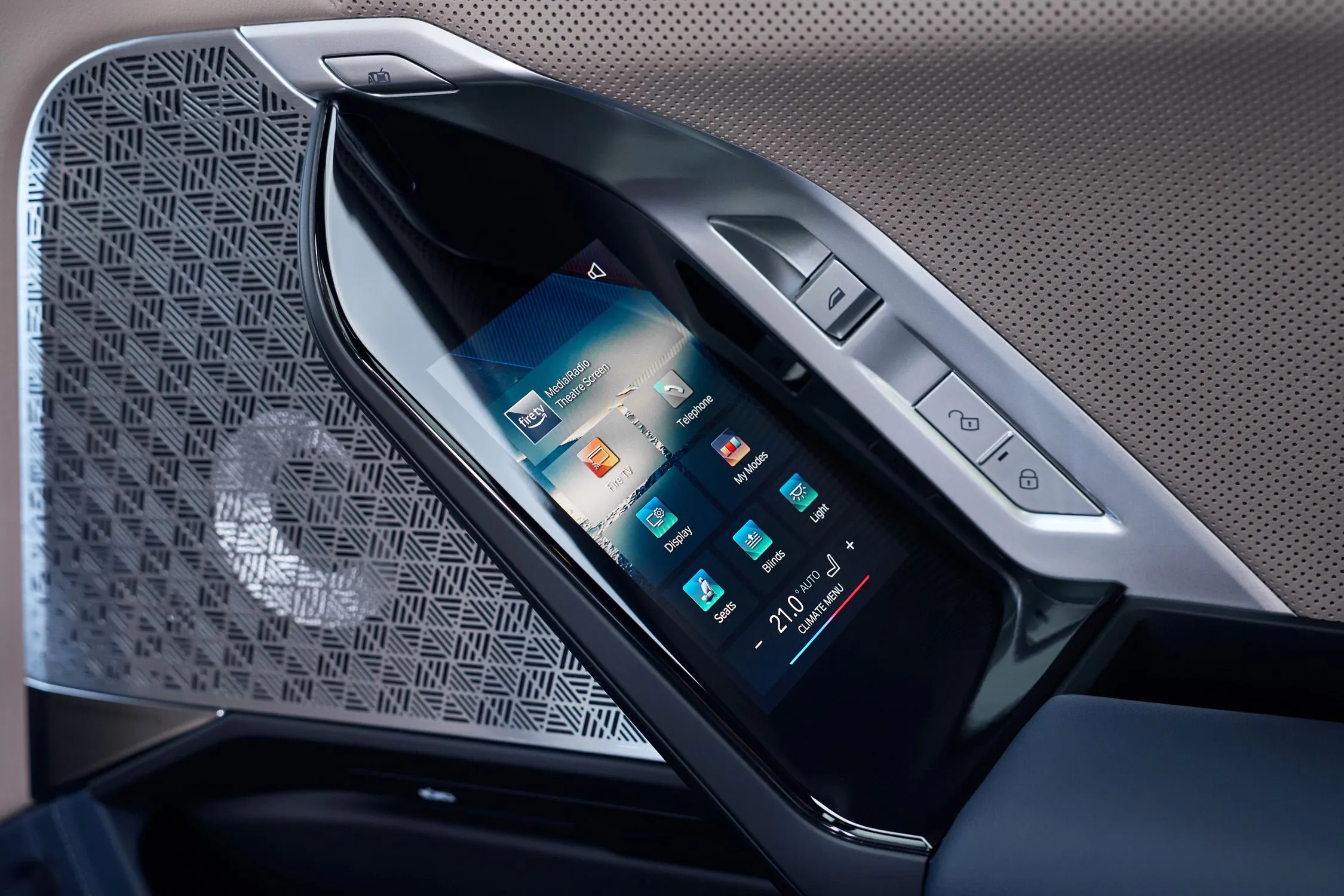
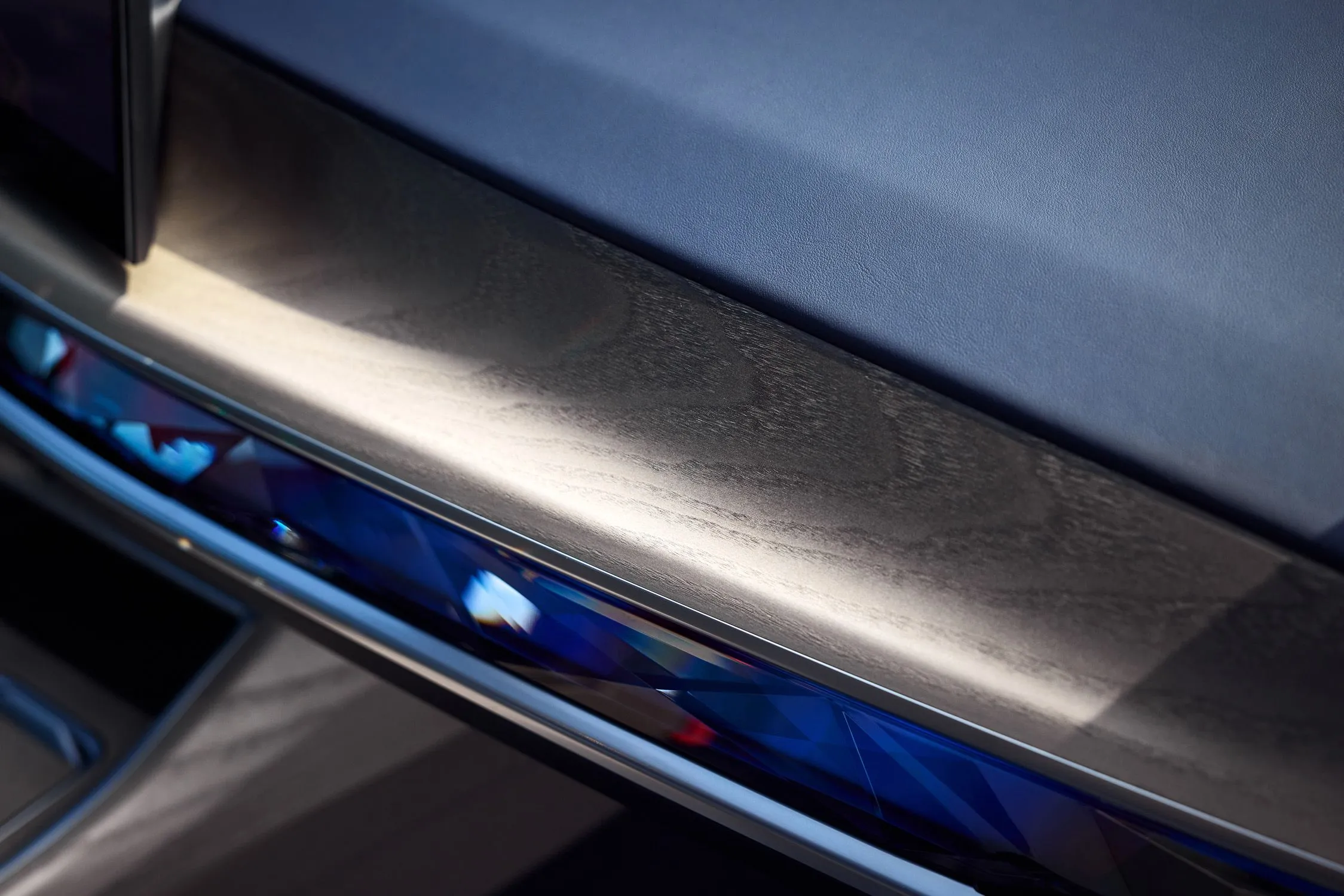
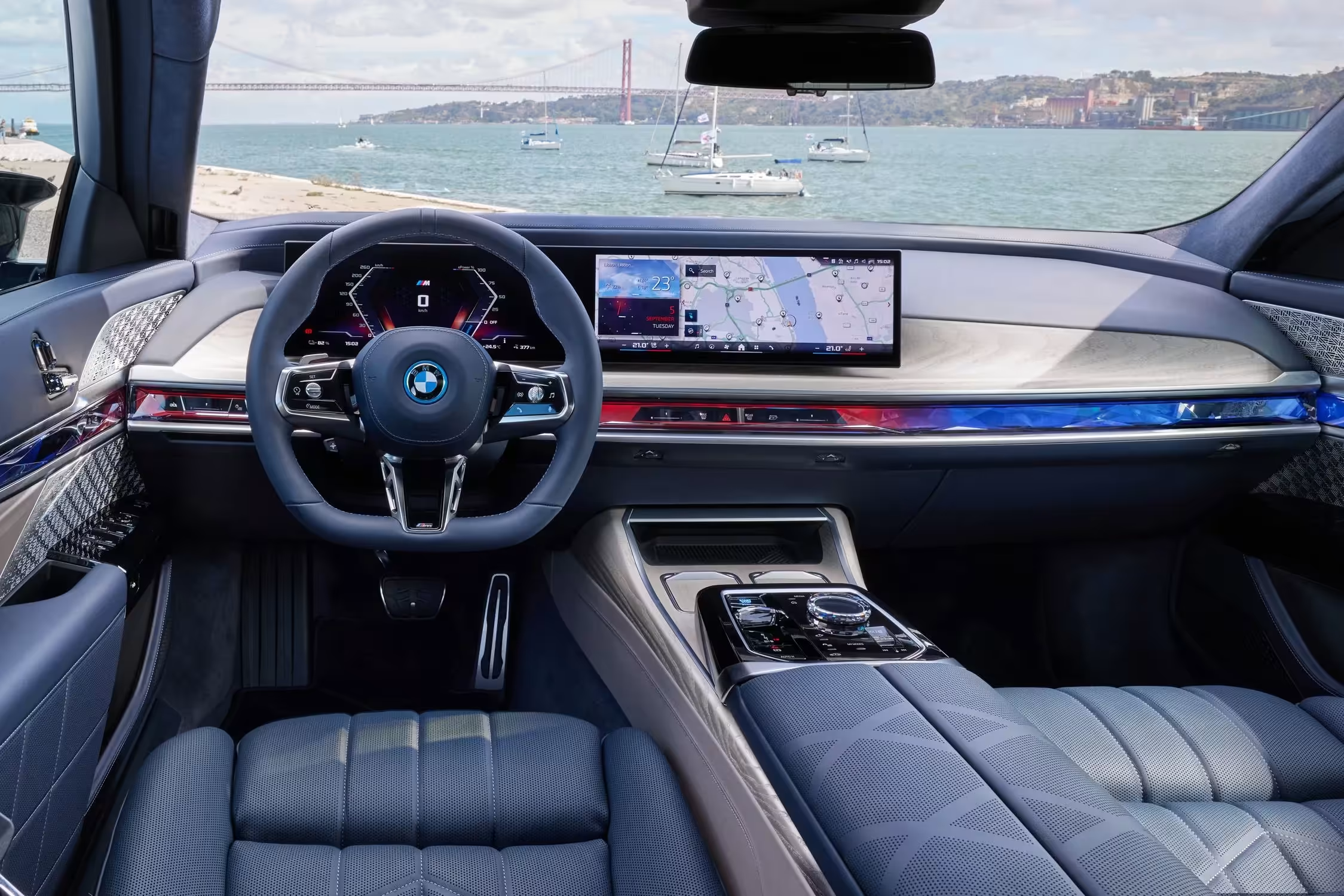
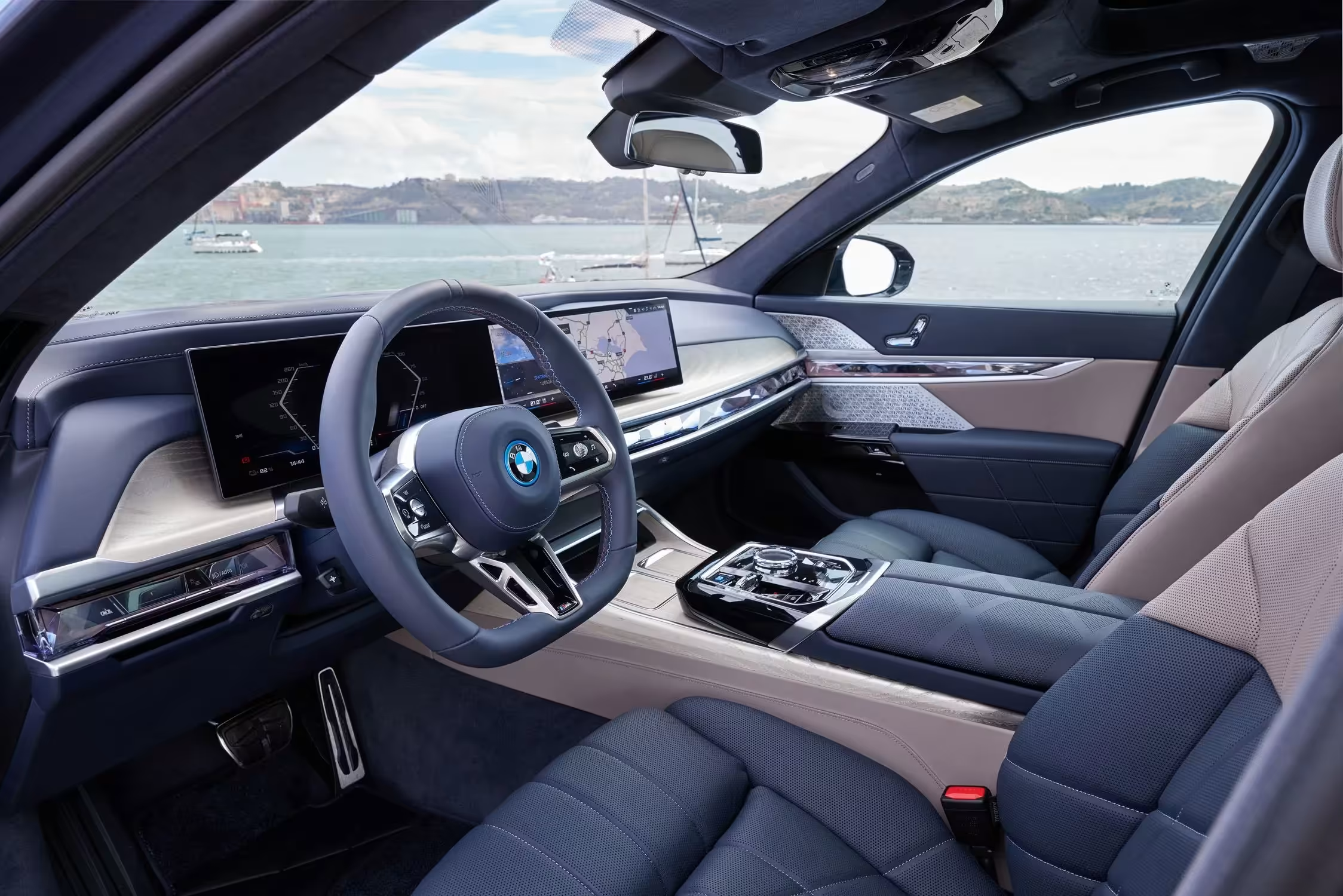
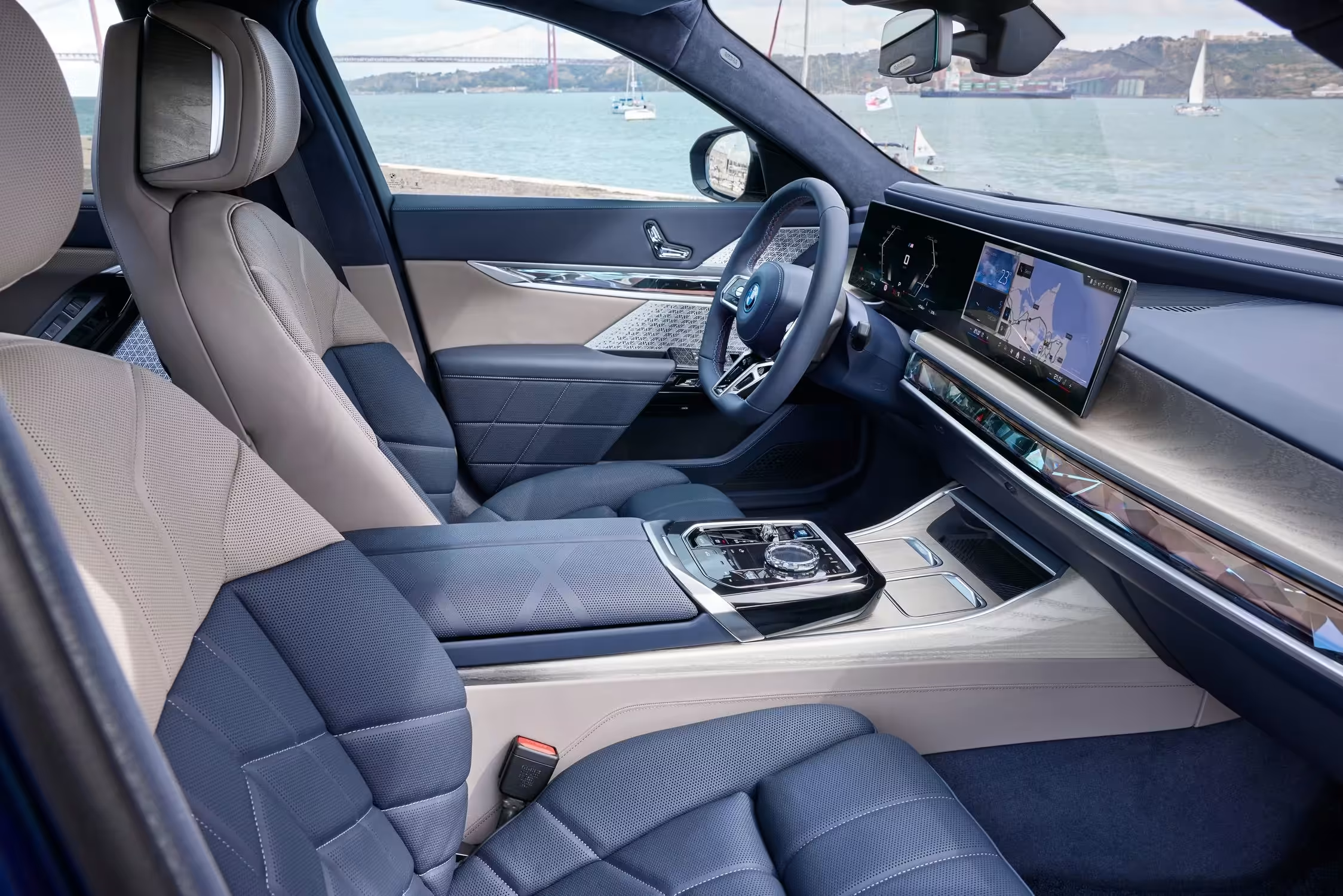
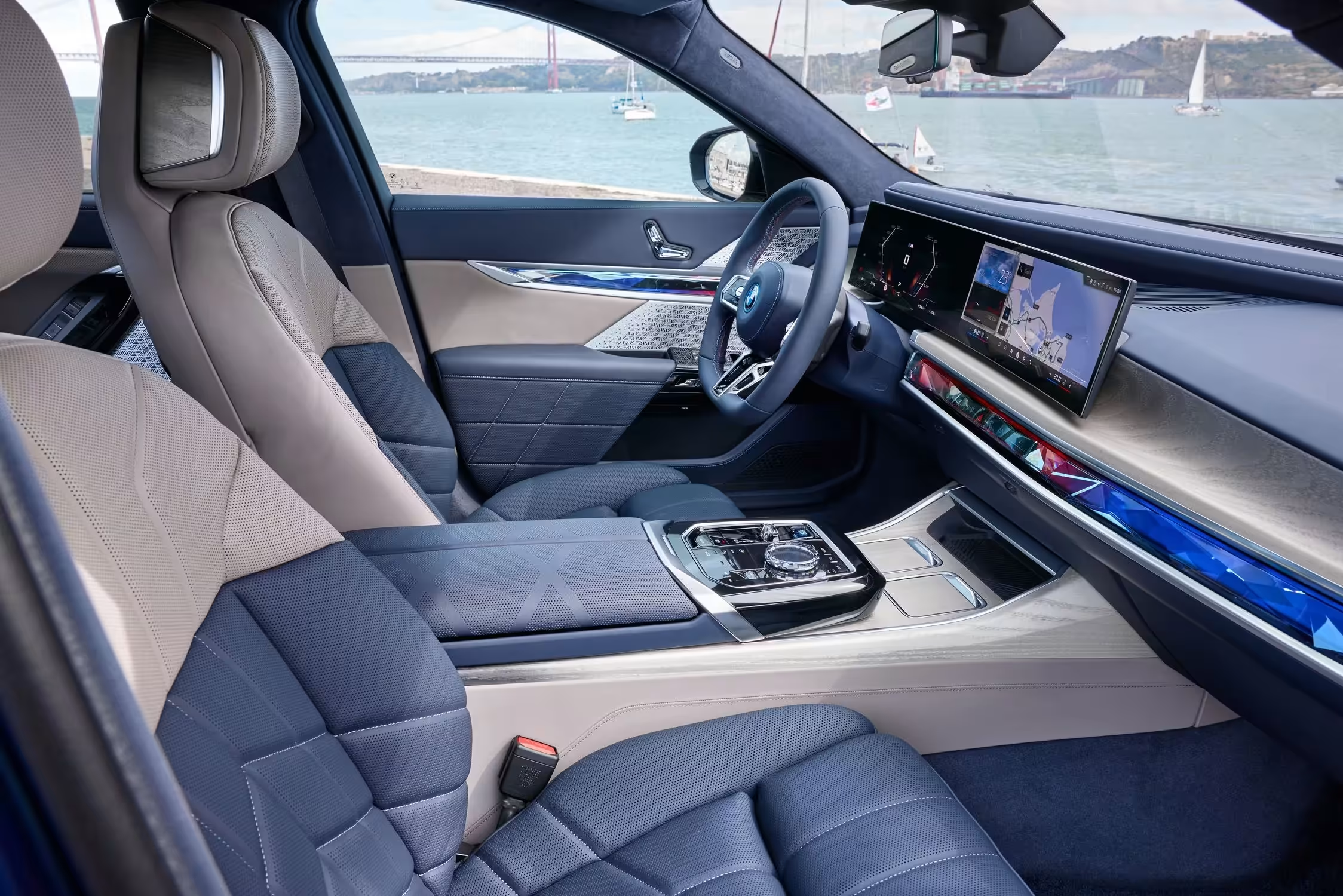
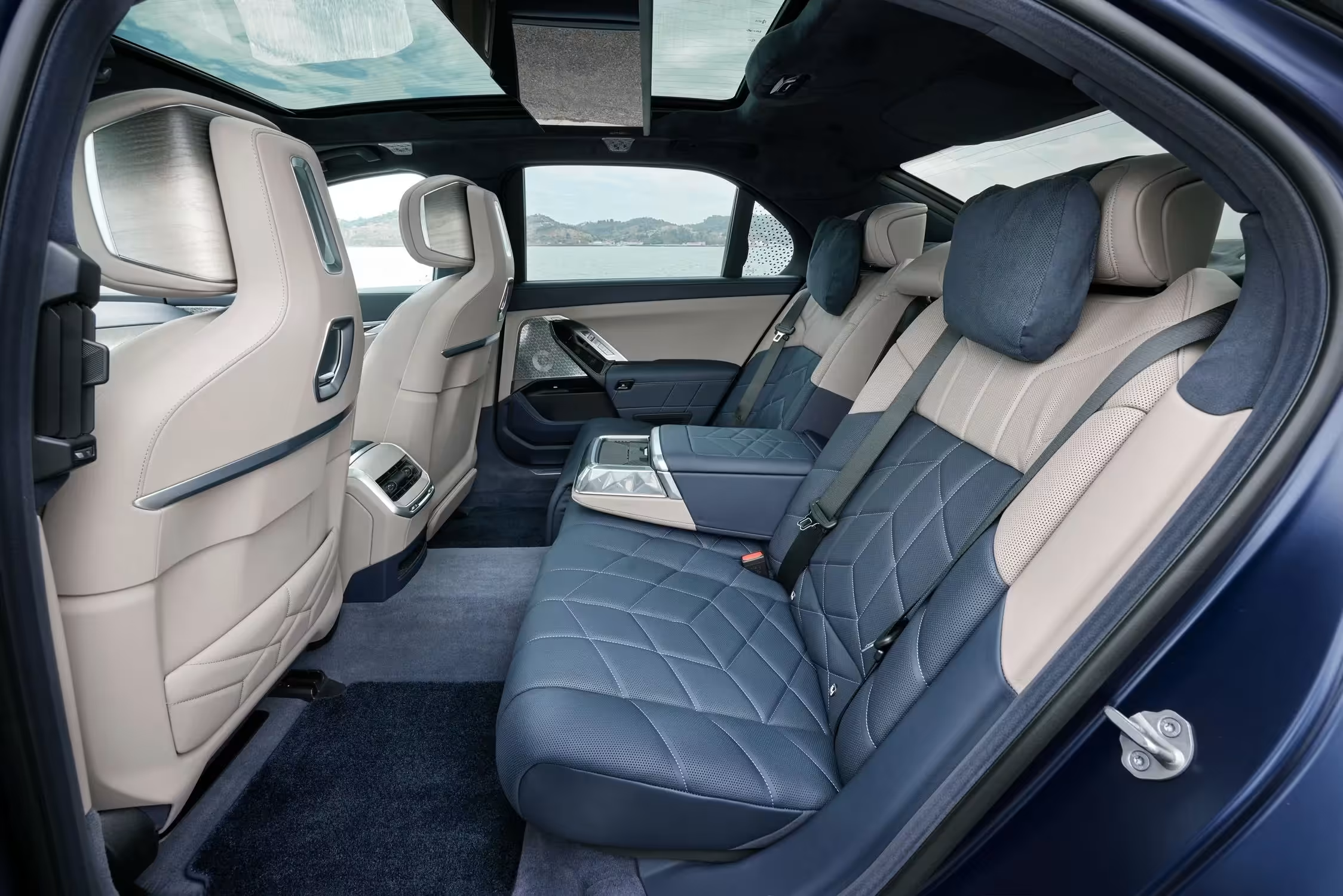
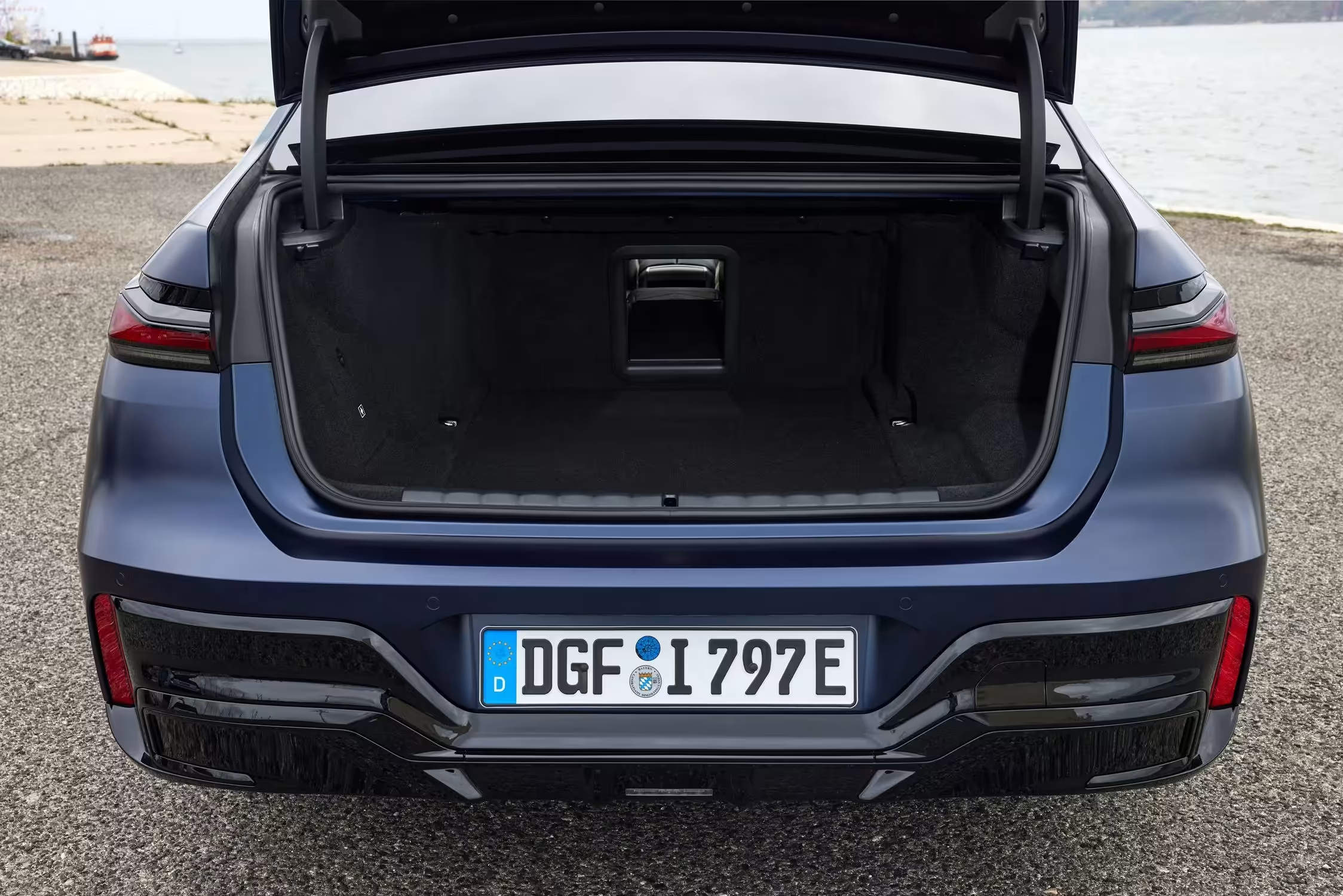
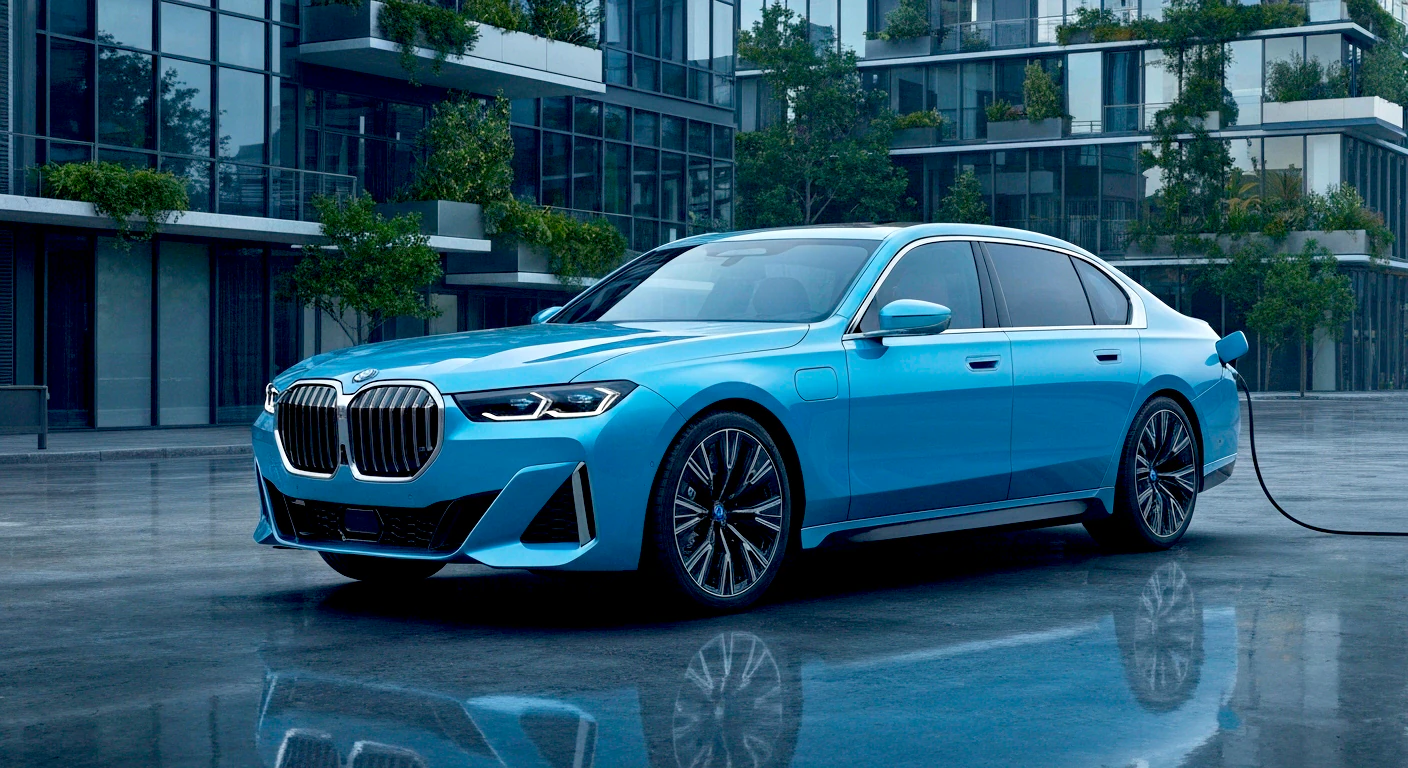
Author: Fabio Isidoro
Founder and editor-in-chief of Canal Carro, he dedicates himself to exploring the automotive universe with depth and passion. A car and technology enthusiast, he produces technical content and in-depth analyses of national and international vehicles, combining quality information with a critical eye for the public.

